
- Online Course

40 Best Essays of All Time (Including Links & Writing Tips)
I wanted to improve my writing skills. I thought that reading the forty best essays of all time would bring me closer to my goal.
I had little money (buying forty collections of essays was out of the question) so I’ve found them online instead. I’ve hacked through piles of them, and finally, I’ve found the great ones. Now I want to share the whole list with you (with the addition of my notes about writing). Each item on the list has a direct link to the essay, so please click away and indulge yourself. Also, next to each essay, there’s an image of the book that contains the original work.
About this essay list:
Reading essays is like indulging in candy; once you start, it’s hard to stop. I sought out essays that were not only well-crafted but also impactful. These pieces genuinely shifted my perspective. Whether you’re diving in for enjoyment or to hone your writing, these essays promise to leave an imprint. It’s fascinating how an essay can resonate with you, and even if details fade, its essence remains. I haven’t ranked them in any way; they’re all stellar. Skim through, explore the summaries, and pick up some writing tips along the way. For more essay gems, consider “Best American Essays” by Joyce Carol Oates or “101 Essays That Will Change The Way You Think” curated by Brianna Wiest.

40 Best Essays of All Time (With Links And Writing Tips)
1. david sedaris – laugh, kookaburra.

A great family drama takes place against the backdrop of the Australian wilderness. And the Kookaburra laughs… This is one of the top essays of the lot. It’s a great mixture of family reminiscences, travel writing, and advice on what’s most important in life. You’ll also learn an awful lot about the curious culture of the Aussies.
Writing tips from the essay:
- Use analogies (you can make it funny or dramatic to achieve a better effect): “Don’t be afraid,” the waiter said, and he talked to the kookaburra in a soothing, respectful voice, the way you might to a child with a switchblade in his hand”.
- You can touch a few cognate stories in one piece of writing . Reveal the layers gradually. Intertwine them and arrange for a grand finale where everything is finally clear.
- Be on the side of the reader. Become their friend and tell the story naturally, like around the dinner table.
- Use short, punchy sentences. Tell only as much as is required to make your point vivid.
- Conjure sentences that create actual feelings: “I had on a sweater and a jacket, but they weren’t quite enough, and I shivered as we walked toward the body, and saw that it was a . . . what, exactly?”
- You may ask a few tough questions in a row to provoke interest and let the reader think.
2. Charles D’Ambrosio – Documents

Do you think your life punches you in the face all too often? After reading this essay, you will change your mind. Reading about loss and hardships often makes us sad at first, but then enables us to feel grateful for our lives . D’Ambrosio shares his documents (poems, letters) that had a major impact on his life, and brilliantly shows how not to let go of the past.
- The most powerful stories are about your family and the childhood moments that shaped your life.
- You don’t need to build up tension and pussyfoot around the crux of the matter. Instead, surprise the reader by telling it like it is: “The poem was an allegory about his desire to leave our family.” Or: “My father had three sons. I’m the eldest; Danny, the youngest, killed himself sixteen years ago”.
- You can use real documents and quotes from your family and friends. It makes it so much more personal and relatable.
- Don’t cringe before the long sentence if you know it’s a strong one.
- At the end of the essay, you may come back to the first theme to close the circuit.
- Using slightly poetic language is acceptable, as long as it improves the story.
3. E. B. White – Once more to the lake

What does it mean to be a father? Can you see your younger self, reflected in your child? This beautiful essay tells the story of the author, his son, and their traditional stay at a placid lake hidden within the forests of Maine. This place of nature is filled with sunshine and childhood memories. It also provides for one of the greatest meditations on nature and the passing of time.
- Use sophisticated language, but not at the expense of readability.
- Use vivid language to trigger the mirror neurons in the reader’s brain: “I took along my son, who had never had any fresh water up his nose and who had seen lily pads only from train windows”.
- It’s important to mention universal feelings that are rarely talked about (it helps to create a bond between two minds): “You remember one thing, and that suddenly reminds you of another thing. I guess I remembered clearest of all the early mornings when the lake was cool and motionless”.
- Animate the inanimate: “this constant and trustworthy body of water”.
- Mentioning tales of yore is a good way to add some mystery and timelessness to your piece.
- Using double, or even triple “and” in one sentence is fine. It can make the sentence sing.
4. Zadie Smith – Fail Better

Aspiring writers feel tremendous pressure to perform. The daily quota of words often turns out to be nothing more than gibberish. What then? Also, should the writer please the reader or should she be fully independent? What does it mean to be a writer, anyway? This essay is an attempt to answer these questions, but its contents are not only meant for scribblers. Within it, you’ll find some great notes about literary criticism, how we treat art , and the responsibility of the reader.
- A perfect novel ? There’s no such thing.
- The novel always reflects the inner world of the writer. That’s why we’re fascinated with writers.
- Writing is not simply about craftsmanship, but about taking your reader to the unknown lands. In the words of Christopher Hitchens: “Your ideal authors ought to pull you from the foundering of your previous existence, not smilingly guide you into a friendly and peaceable harbor.”
- Style comes from your unique personality and the perception of the world. It takes time to develop it.
- Never try to tell it all. “All” can never be put into language. Take a part of it and tell it the best you can.
- Avoid being cliché. Try to infuse new life into your writing .
- Writing is about your way of being. It’s your game. Paradoxically, if you try to please everyone, your writing will become less appealing. You’ll lose the interest of the readers. This rule doesn’t apply in the business world where you have to write for a specific person (a target audience).
- As a reader, you have responsibilities too. According to the critics, every thirty years, there’s just a handful of great novels. Maybe it’s true. But there’s also an element of personal connection between the reader and the writer. That’s why for one person a novel is a marvel, while for the other, nothing special at all. That’s why you have to search and find the author who will touch you.
5. Virginia Woolf – Death of the Moth

Amid an ordinary day, sitting in a room of her own, Virginia Woolf tells about the epic struggle for survival and the evanescence of life. This short essay is truly powerful. In the beginning, the atmosphere is happy. Life is in full force. And then, suddenly, it fades away. This sense of melancholy would mark the last years of Woolf’s life.
- The melody of language… A good sentence is like music: “Moths that fly by day are not properly to be called moths; they do not excite that pleasant sense of dark autumn nights and ivy-blossom which the commonest yellow- underwing asleep in the shadow of the curtain never fails to rouse in us”.
- You can show the grandest in the mundane (for example, the moth at your window and the drama of life and death).
- Using simple comparisons makes the style more lucid: “Being intent on other matters I watched these futile attempts for a time without thinking, unconsciously waiting for him to resume his flight, as one waits for a machine, that has stopped momentarily, to start again without considering the reason of its failure”.
6. Meghan Daum – My Misspent Youth

Many of us, at some point or another, dream about living in New York. Meghan Daum’s take on the subject differs slightly from what you might expect. There’s no glamour, no Broadway shows, and no fancy restaurants. Instead, there’s the sullen reality of living in one of the most expensive cities in the world. You’ll get all the juicy details about credit cards, overdue payments, and scrambling for survival. It’s a word of warning. But it’s also a great story about shattered fantasies of living in a big city. Word on the street is: “You ain’t promised mañana in the rotten manzana.”
- You can paint a picture of your former self. What did that person believe in? What kind of world did he or she live in?
- “The day that turned your life around” is a good theme you may use in a story. Memories of a special day are filled with emotions. Strong emotions often breed strong writing.
- Use cultural references and relevant slang to create a context for your story.
- You can tell all the details of the story, even if in some people’s eyes you’ll look like the dumbest motherfucker that ever lived. It adds to the originality.
- Say it in a new way: “In this mindset, the dollars spent, like the mechanics of a machine no one bothers to understand, become an abstraction, an intangible avenue toward self-expression, a mere vehicle of style”.
- You can mix your personal story with the zeitgeist or the ethos of the time.
7. Roger Ebert – Go Gentle Into That Good Night

Probably the greatest film critic of all time, Roger Ebert, tells us not to rage against the dying of the light. This essay is full of courage, erudition, and humanism. From it, we learn about what it means to be dying (Hitchens’ “Mortality” is another great work on that theme). But there’s so much more. It’s a great celebration of life too. It’s about not giving up, and sticking to your principles until the very end. It brings to mind the famous scene from Dead Poets Society where John Keating (Robin Williams) tells his students: “Carpe, carpe diem, seize the day boys, make your lives extraordinary”.
- Start with a powerful sentence: “I know it is coming, and I do not fear it, because I believe there is nothing on the other side of death to fear.”
- Use quotes to prove your point -”‘Ask someone how they feel about death’, he said, ‘and they’ll tell you everyone’s gonna die’. Ask them, ‘In the next 30 seconds?’ No, no, no, that’s not gonna happen”.
- Admit the basic truths about reality in a childlike way (especially after pondering quantum physics) – “I believe my wristwatch exists, and even when I am unconscious, it is ticking all the same. You have to start somewhere”.
- Let other thinkers prove your point. Use quotes and ideas from your favorite authors and friends.
8. George Orwell – Shooting an Elephant

Even after one reading, you’ll remember this one for years. The story, set in British Burma, is about shooting an elephant (it’s not for the squeamish). It’s also the most powerful denunciation of colonialism ever put into writing. Orwell, apparently a free representative of British rule, feels to be nothing more than a puppet succumbing to the whim of the mob.
- The first sentence is the most important one: “In Moulmein, in Lower Burma, I was hated by large numbers of people — the only time in my life that I have been important enough for this to happen to me”.
- You can use just the first paragraph to set the stage for the whole piece of prose.
- Use beautiful language that stirs the imagination: “I remember that it was a cloudy, stuffy morning at the beginning of the rains.” Or: “I watched him beating his bunch of grass against his knees, with that preoccupied grandmotherly air that elephants have.”
- If you’ve ever been to war, you will have a story to tell: “(Never tell me, by the way, that the dead look peaceful. Most of the corpses I have seen looked devilish.)”
- Use simple words, and admit the sad truth only you can perceive: “They did not like me, but with the magical rifle in my hands I was momentarily worth watching”.
- Share words of wisdom to add texture to the writing: “I perceived at this moment that when the white man turns tyrant it is his freedom that he destroys.”
- I highly recommend reading everything written by Orwell, especially if you’re looking for the best essay collections on Amazon or Goodreads.
9. George Orwell – A Hanging

It’s just another day in Burma – time to hang a man. Without much ado, Orwell recounts the grim reality of taking another person’s life. A man is taken from his cage and in a few minutes, he’s going to be hanged. The most horrible thing is the normality of it. It’s a powerful story about human nature. Also, there’s an extraordinary incident with the dog, but I won’t get ahead of myself.
- Create brilliant, yet short descriptions of characters: “He was a Hindu, a puny wisp of a man, with a shaven head and vague liquid eyes. He had a thick, sprouting mustache, absurdly too big for his body, rather like the mustache of a comic man on the films”.
- Understand and share the felt presence of a unique experience: “It is curious, but till that moment I had never realized what it means to destroy a healthy, conscious man”.
- Make your readers hear the sound that will stay with them forever: “And then when the noose was fixed, the prisoner began crying out on his god. It was a high, reiterated cry of “Ram! Ram! Ram! Ram!”
- Make the ending original by refusing the tendency to seek closure or summing it up.
10. Christopher Hitchens – Assassins of The Mind

In one of the greatest essays written in defense of free speech, Christopher Hitchens shares many examples of how modern media kneel to the explicit threats of violence posed by Islamic extremists. He recounts the story of his friend, Salman Rushdie, author of Satanic Verses who, for many years, had to watch over his shoulder because of the fatwa of Ayatollah Khomeini. With his usual wit, Hitchens shares various examples of people who died because of their opinions and of editors who refuse to publish anything related to Islam because of fear (and it was written long before the Charlie Hebdo massacre). After reading the essay, you realize that freedom of expression is one of the most precious things we have and that we have to fight for it. I highly recommend all essay collections penned by Hitchens, especially the ones written for Vanity Fair.
- Assume that the readers will know the cultural references. When they do, their self-esteem goes up – they are a part of an insider group.
- When proving your point, give a variety of real-life examples from eclectic sources. Leave no room for ambiguity or vagueness. Research and overall knowledge are essential here.
- Use italics to emphasize a specific word or phrase (here I use the underlining): “We live now in a climate where every publisher and editor and politician has to weigh in advance the possibility of violent Muslim reprisal. In consequence, several things have not happened.”
- Think about how to make it sound more original: “So there is now a hidden partner in our cultural and academic and publishing and the broadcasting world: a shadowy figure that has, uninvited, drawn up a chair to the table.”
11. Christopher Hitchens – The New Commandments

It’s high time to shatter the tablets and amend the biblical rules of conduct. Watch, as Christopher Hitchens slays one commandment after the other on moral, as well as historical grounds. For example, did you know that there are many versions of the divine law dictated by God to Moses which you can find in the Bible? Aren’t we thus empowered to write our version of a proper moral code? If you approach it with an open mind, this essay may change the way you think about the Bible and religion.
- Take the iconoclastic approach. Have a party on the hallowed soil.
- Use humor to undermine orthodox ideas (it seems to be the best way to deal with an established authority).
- Use sarcasm and irony when appropriate (or not): “Nobody is opposed to a day of rest. The international Communist movement got its start by proclaiming a strike for an eight-hour day on May 1, 1886, against Christian employers who used child labor seven days a week”.
- Defeat God on legal grounds: “Wise lawmakers know that it is a mistake to promulgate legislation that is impossible to obey”.
- Be ruthless in the logic of your argument. Provide evidence.
12. Phillip Lopate – Against Joie de Vivre

While reading this fantastic essay, this quote from Slavoj Žižek kept coming back to me: “I think that the only life of deep satisfaction is a life of eternal struggle, especially struggle with oneself. If you want to remain happy, just remain stupid. Authentic masters are never happy; happiness is a category of slaves”. I can bear the onus of happiness or joie de vivre for some time. But this force enables me to get free and wallow in the sweet feelings of melancholy and nostalgia. By reading this work of Lopate, you’ll enter into the world of an intelligent man who finds most social rituals a drag. It’s worth exploring.
- Go against the grain. Be flamboyant and controversial (if you can handle it).
- Treat the paragraph like a group of thoughts on one theme. Next paragraph, next theme.
- Use references to other artists to set the context and enrich the prose: “These sunny little canvases with their talented innocence, the third-generation spirit of Montmartre, bore testimony to a love of life so unbending as to leave an impression of rigid narrow-mindedness as extreme as any Savonarola. Their rejection of sorrow was total”.
- Capture the emotions in life that are universal, yet remain unspoken.
- Don’t be afraid to share your intimate experiences.
13. Philip Larkin – The Pleasure Principle

This piece comes from the Required Writing collection of personal essays. Larkin argues that reading in verse should be a source of intimate pleasure – not a medley of unintelligible thoughts that only the author can (or can’t?) decipher. It’s a sobering take on modern poetry and a great call to action for all those involved in it. Well worth a read.
- Write about complicated ideas (such as poetry) simply. You can change how people look at things if you express yourself enough.
- Go boldly. The reader wants a bold writer: “We seem to be producing a new kind of bad poetry, not the old kind that tries to move the reader and fails, but one that does not even try”.
- Play with words and sentence length. Create music: “It is time some of you playboys realized, says the judge, that reading a poem is hard work. Fourteen days in stir. Next case”.
- Persuade the reader to take action. Here, direct language is the most effective.
14. Sigmund Freud – Thoughts for the Times on War and Death

This essay reveals Freud’s disillusionment with the whole project of Western civilization. How the peaceful European countries could engage in a war that would eventually cost over 17 million lives? What stirs people to kill each other? Is it their nature, or are they puppets of imperial forces with agendas of their own? From the perspective of time, this work by Freud doesn’t seem to be fully accurate. Even so, it’s well worth your time.
- Commence with long words derived from Latin. Get grandiloquent, make your argument incontrovertible, and leave your audience discombobulated.
- Use unending sentences, so that the reader feels confused, yet impressed.
- Say it well: “In this way, he enjoyed the blue sea and the grey; the beauty of snow-covered mountains and green meadowlands; the magic of northern forests and the splendor of southern vegetation; the mood evoked by landscapes that recall great historical events, and the silence of untouched nature”.
- Human nature is a subject that never gets dry.
15. Zadie Smith – Some Notes on Attunement
“You are privy to a great becoming, but you recognize nothing” – Francis Dolarhyde. This one is about the elusiveness of change occurring within you. For Zadie, it was hard to attune to the vibes of Joni Mitchell – especially her Blue album. But eventually, she grew up to appreciate her genius, and all the other things changed as well. This top essay is all about the relationship between humans, and art. We shouldn’t like art because we’re supposed to. We should like it because it has an instantaneous, emotional effect on us. Although, according to Stansfield (Gary Oldman) in Léon, liking Beethoven is rather mandatory.
- Build an expectation of what’s coming: “The first time I heard her I didn’t hear her at all”.
- Don’t be afraid of repetition if it feels good.
- Psychedelic drugs let you appreciate things you never appreciated.
- Intertwine a personal journey with philosophical musings.
- Show rather than tell: “My friends pitied their eyes. The same look the faithful give you as you hand them back their “literature” and close the door in their faces”.
- Let the poets speak for you: “That time is past, / And all its aching joys are now no
- more, / And all its dizzy raptures”.
- By voicing your anxieties, you can heal the anxieties of the reader. In that way, you say: “I’m just like you. I’m your friend in this struggle”.
- Admit your flaws to make your persona more relatable.
16. Annie Dillard – Total Eclipse

My imagination was always stirred by the scene of the solar eclipse in Pharaoh, by Boleslaw Prus. I wondered about the shock of the disoriented crowd when they saw how their ruler could switch off the light. Getting immersed in this essay by Annie Dillard has a similar effect. It produces amazement and some kind of primeval fear. It’s not only the environment that changes; it’s your mind and the perception of the world. After the eclipse, nothing is going to be the same again.
- Yet again, the power of the first sentence draws you in: “It had been like dying, that sliding down the mountain pass”.
- Don’t miss the extraordinary scene. Then describe it: “Up in the sky, like a crater from some distant cataclysm, was a hollow ring”.
- Use colloquial language. Write as you talk. Short sentences often win.
- Contrast the numinous with the mundane to enthrall the reader.
17. Édouard Levé – When I Look at a Strawberry, I Think of a Tongue

This suicidally beautiful essay will teach you a lot about the appreciation of life and the struggle with mental illness. It’s a collection of personal, apparently unrelated thoughts that show us the rich interior of the author. You look at the real-time thoughts of another person, and then recognize the same patterns within yourself… It sounds like a confession of a person who’s about to take their life, and it’s striking in its originality.
- Use the stream-of-consciousness technique and put random thoughts on paper. Then, polish them: “I have attempted suicide once, I’ve been tempted four times to attempt it”.
- Place the treasure deep within the story: “When I look at a strawberry, I think of a tongue, when I lick one, of a kiss”.
- Don’t worry about what people might think. The more you expose, the more powerful the writing. Readers also take part in the great drama. They experience universal emotions that mostly stay inside. You can translate them into writing.
18. Gloria E. Anzaldúa – How to Tame a Wild Tongue

Anzaldúa, who was born in south Texas, had to struggle to find her true identity. She was American, but her culture was grounded in Mexico. In this way, she and her people were not fully respected in either of the countries. This essay is an account of her journey of becoming the ambassador of the Chicano (Mexican-American) culture. It’s full of anecdotes, interesting references, and different shades of Spanish. It’s a window into a new cultural dimension that you’ve never experienced before.
- If your mother tongue is not English, but you write in English, use some of your unique homeland vocabulary.
- You come from a rich cultural heritage. You can share it with people who never heard about it, and are not even looking for it, but it is of immense value to them when they discover it.
- Never forget about your identity. It is precious. It is a part of who you are. Even if you migrate, try to preserve it. Use it to your best advantage and become the voice of other people in the same situation.
- Tell them what’s really on your mind: “So if you want to hurt me, talk badly about my language. Ethnic identity is twin skin to linguistic identity – I am my language”.
19. Kurt Vonnegut – Dispatch From A Man Without a Country

In terms of style, this essay is flawless. It’s simple, conversational, humorous, and yet, full of wisdom. And when Vonnegut becomes a teacher and draws an axis of “beginning – end”, and, “good fortune – bad fortune” to explain literature, it becomes outright hilarious. It’s hard to find an author with such a down-to-earth approach. He doesn’t need to get intellectual to prove a point. And the point could be summed up by the quote from Great Expectations – “On the Rampage, Pip, and off the Rampage, Pip – such is Life!”
- Start with a curious question: “Do you know what a twerp is?”
- Surprise your readers with uncanny analogies: “I am from a family of artists. Here I am, making a living in the arts. It has not been a rebellion. It’s as though I had taken over the family Esso station.”
- Use your natural language without too many special effects. In time, the style will crystalize.
- An amusing lesson in writing from Mr. Vonnegut: “Here is a lesson in creative writing. First rule: Do not use semicolons. They are transvestite hermaphrodites representing absolutely nothing. All they do is show you’ve been to college”.
- You can put actual images or vignettes between the paragraphs to illustrate something.
20. Mary Ruefle – On Fear

Most psychologists and gurus agree that fear is the greatest enemy of success or any creative activity. It’s programmed into our minds to keep us away from imaginary harm. Mary Ruefle takes on this basic human emotion with flair. She explores fear from so many angles (especially in the world of poetry-writing) that at the end of this personal essay, you will look at it, dissect it, untangle it, and hopefully be able to say “f**k you” the next time your brain is trying to stop you.
- Research your subject thoroughly. Ask people, have interviews, get expert opinions, and gather as much information as possible. Then scavenge through the fields of data, and pull out the golden bits that will let your prose shine.
- Use powerful quotes to add color to your story: “The poet who embarks on the creation of the poem (as I know by experience), begins with the aimless sensation of a hunter about to embark on a night hunt through the remotest of forests. Unaccountable dread stirs in his heart”. – Lorca.
- Writing advice from the essay: “One of the fears a young writer has is not being able to write as well as he or she wants to, the fear of not being able to sound like X or Y, a favorite author. But out of fear, hopefully, is born a young writer’s voice”.
21. Susan Sontag – Against Interpretation

In this highly intellectual essay, Sontag fights for art and its interpretation. It’s a great lesson, especially for critics and interpreters who endlessly chew on works that simply defy interpretation. Why don’t we just leave the art alone? I always hated it when at school they asked me: “What did the author have in mind when he did X or Y?” Iēsous Pantocrator! Hell if I know! I will judge it through my subjective experience!
- Leave the art alone: “Today is such a time, when the project of interpretation is reactionary, stifling. Like the fumes of the automobile and heavy industry which befoul the urban atmosphere, the effusion of interpretations of art today poisons our sensibilities”.
- When you have something really important to say, style matters less.
- There’s no use in creating a second meaning or inviting interpretation of our art. Just leave it be and let it speak for itself.
22. Nora Ephron – A Few Words About Breasts

This is a heartwarming, coming-of-age story about a young girl who waits in vain for her breasts to grow. It’s simply a humorous and pleasurable read. The size of breasts is a big deal for women. If you’re a man, you may peek into the mind of a woman and learn many interesting things. If you’re a woman, maybe you’ll be able to relate and at last, be at peace with your bosom.
- Touch an interesting subject and establish a strong connection with the readers (in that case, women with small breasts). Let your personality shine through the written piece. If you are lighthearted, show it.
- Use hyphens to create an impression of real talk: “My house was full of apples and peaches and milk and homemade chocolate chip cookies – which were nice, and good for you, but-not-right-before-dinner-or-you’ll-spoil-your-appetite.”
- Use present tense when you tell a story to add more life to it.
- Share the pronounced, memorable traits of characters: “A previous girlfriend named Solange, who was famous throughout Beverly Hills High School for having no pigment in her right eyebrow, had knitted them for him (angora dice)”.
23. Carl Sagan – Does Truth Matter – Science, Pseudoscience, and Civilization

Carl Sagan was one of the greatest proponents of skepticism, and an author of numerous books, including one of my all-time favorites – The Demon-Haunted World . He was also a renowned physicist and the host of the fantastic Cosmos: A Personal Voyage series, which inspired a whole generation to uncover the mysteries of the cosmos. He was also a dedicated weed smoker – clearly ahead of his time. The essay that you’re about to read is a crystallization of his views about true science, and why you should check the evidence before believing in UFOs or similar sorts of crap.
- Tell people the brutal truth they need to hear. Be the one who spells it out for them.
- Give a multitude of examples to prove your point. Giving hard facts helps to establish trust with the readers and show the veracity of your arguments.
- Recommend a good book that will change your reader’s minds – How We Know What Isn’t So: The Fallibility of Human Reason in Everyday Life
24. Paul Graham – How To Do What You Love

How To Do What You Love should be read by every college student and young adult. The Internet is flooded with a large number of articles and videos that are supposed to tell you what to do with your life. Most of them are worthless, but this one is different. It’s sincere, and there’s no hidden agenda behind it. There’s so much we take for granted – what we study, where we work, what we do in our free time… Surely we have another two hundred years to figure it out, right? Life’s too short to be so naïve. Please, read the essay and let it help you gain fulfillment from your work.
- Ask simple, yet thought-provoking questions (especially at the beginning of the paragraph) to engage the reader: “How much are you supposed to like what you do?”
- Let the readers question their basic assumptions: “Prestige is like a powerful magnet that warps even your beliefs about what you enjoy. It causes you to work not on what you like, but what you’d like to like”.
- If you’re writing for a younger audience, you can act as a mentor. It’s beneficial for younger people to read a few words of advice from a person with experience.
25. John Jeremiah Sullivan – Mister Lytle

A young, aspiring writer is about to become a nurse of a fading writer – Mister Lytle (Andrew Nelson Lytle), and there will be trouble. This essay by Sullivan is probably my favorite one from the whole list. The amount of beautiful sentences it contains is just overwhelming. But that’s just a part of its charm. It also takes you to the Old South which has an incredible atmosphere. It’s grim and tawny but you want to stay there for a while.
- Short, distinct sentences are often the most powerful ones: “He had a deathbed, in other words. He didn’t go suddenly”.
- Stay consistent with the mood of the story. When reading Mister Lytle you are immersed in that southern, forsaken, gloomy world, and it’s a pleasure.
- The spectacular language that captures it all: “His French was superb, but his accent in English was best—that extinct mid-Southern, land-grant pioneer speech, with its tinges of the abandoned Celtic urban Northeast (“boned” for burned) and its raw gentility”.
- This essay is just too good. You have to read it.
26. Joan Didion – On Self Respect

Normally, with that title, you would expect some straightforward advice about how to improve your character and get on with your goddamn life – but not from Joan Didion. From the very beginning, you can feel the depth of her thinking, and the unmistakable style of a true woman who’s been hurt. You can learn more from this essay than from whole books about self-improvement . It reminds me of the scene from True Detective, where Frank Semyon tells Ray Velcoro to “own it” after he realizes he killed the wrong man all these years ago. I guess we all have to “own it”, recognize our mistakes, and move forward sometimes.
- Share your moral advice: “Character — the willingness to accept responsibility for one’s own life — is the source from which self-respect springs”.
- It’s worth exploring the subject further from a different angle. It doesn’t matter how many people have already written on self-respect or self-reliance – you can still write passionately about it.
- Whatever happens, you must take responsibility for it. Brave the storms of discontent.
27. Susan Sontag – Notes on Camp

I’ve never read anything so thorough and lucid about an artistic current. After reading this essay, you will know what camp is. But not only that – you will learn about so many artists you’ve never heard of. You will follow their traces and go to places where you’ve never been before. You will vastly increase your appreciation of art. It’s interesting how something written as a list could be so amazing. All the listicles we usually see on the web simply cannot compare with it.
- Talking about artistic sensibilities is a tough job. When you read the essay, you will see how much research, thought and raw intellect came into it. But that’s one of the reasons why people still read it today, even though it was written in 1964.
- You can choose an unorthodox way of expression in the medium for which you produce. For example, Notes on Camp is a listicle – one of the most popular content formats on the web. But in the olden days, it was uncommon to see it in print form.
- Just think about what is camp: “And third among the great creative sensibilities is Camp: the sensibility of failed seriousness, of the theatricalization of experience. Camp refuses both the harmonies of traditional seriousness and the risks of fully identifying with extreme states of feeling”.
28. Ralph Waldo Emerson – Self-Reliance

That’s the oldest one from the lot. Written in 1841, it still inspires generations of people. It will let you understand what it means to be self-made. It contains some of the most memorable quotes of all time. I don’t know why, but this one especially touched me: “Every true man is a cause, a country, and an age; requires infinite spaces and numbers and time fully to accomplish his design, and posterity seems to follow his steps as a train of clients”. Now isn’t it purely individualistic, American thought? Emerson told me (and he will tell you) to do something amazing with my life. The language it contains is a bit archaic, but that just adds to the weight of the argument. You can consider it to be a meeting with a great philosopher who shaped the ethos of the modern United States.
- You can start with a powerful poem that will set the stage for your work.
- Be free in your creative flow. Do not wait for the approval of others: “What I must do is all that concerns me, not what the people think. This rule, equally arduous in actual and in intellectual life, may serve for the whole distinction between greatness and meanness”.
- Use rhetorical questions to strengthen your argument: “I hear a preacher announce for his text and topic the expediency of one of the institutions of his church. Do I not know beforehand that not possibly say a new and spontaneous word?”
29. David Foster Wallace – Consider The Lobster

When you want simple field notes about a food festival, you needn’t send there the formidable David Foster Wallace. He sees right through the hypocrisy and cruelty behind killing hundreds of thousands of innocent lobsters – by boiling them alive. This essay uncovers some of the worst traits of modern American people. There are no apologies or hedging one’s bets. There’s just plain truth that stabs you in the eye like a lobster claw. After reading this essay, you may reconsider the whole animal-eating business.
- When it’s important, say it plainly and stagger the reader: “[Lobsters] survive right up until they’re boiled. Most of us have been in supermarkets or restaurants that feature tanks of live lobster, from which you can pick out your supper while it watches you point”.
- In your writing, put exact quotes of the people you’ve been interviewing (including slang and grammatical errors). It makes it more vivid, and interesting.
- You can use humor in serious situations to make your story grotesque.
- Use captions to expound on interesting points of your essay.
30. David Foster Wallace – The Nature of the Fun

The famous novelist and author of the most powerful commencement speech ever done is going to tell you about the joys and sorrows of writing a work of fiction. It’s like taking care of a mutant child that constantly oozes smelly liquids. But you love that child and you want others to love it too. It’s a very humorous account of what it means to be an author. If you ever plan to write a novel, you should read that one. And the story about the Chinese farmer is just priceless.
- Base your point on a chimerical analogy. Here, the writer’s unfinished work is a “hideously damaged infant”.
- Even in expository writing, you may share an interesting story to keep things lively.
- Share your true emotions (even when you think they won’t interest anyone). Often, that’s exactly what will interest the reader.
- Read the whole essay for marvelous advice on writing fiction.
31. Margaret Atwood – Attitude

This is not an essay per se, but I included it on the list for the sake of variety. It was delivered as a commencement speech at The University of Toronto, and it’s about keeping the right attitude. Soon after leaving university, most graduates have to forget about safety, parties, and travel and start a new life – one filled with a painful routine that will last until they drop. Atwood says that you don’t have to accept that. You can choose how you react to everything that happens to you (and you don’t have to stay in that dead-end job for the rest of your days).
- At times, we are all too eager to persuade, but the strongest persuasion is not forceful. It’s subtle. It speaks to the heart. It affects you gradually.
- You may be tempted to talk about a subject by first stating what it is not, rather than what it is. Try to avoid that.
- Simple advice for writers (and life in general): “When faced with the inevitable, you always have a choice. You may not be able to alter reality, but you can alter your attitude towards it”.
32. Jo Ann Beard – The Fourth State of Matter

Read that one as soon as possible. It’s one of the most masterful and impactful essays you’ll ever read. It’s like a good horror – a slow build-up, and then your jaw drops to the ground. To summarize the story would be to spoil it, so I recommend that you just dig in and devour this essay in one sitting. It’s a perfect example of “show, don’t tell” writing, where the actions of characters are enough to create the right effect. No need for flowery adjectives here.
- The best story you will tell is going to come from your personal experience.
- Use mysteries that will nag the reader. For example, at the beginning of the essay, we learn about the “vanished husband” but there’s no explanation. We have to keep reading to get the answer.
- Explain it in simple terms: “You’ve got your solid, your liquid, your gas, and then your plasma”. Why complicate?
33. Terence McKenna – Tryptamine Hallucinogens and Consciousness

To me, Terence McKenna was one of the most interesting thinkers of the twentieth century. His many lectures (now available on YouTube) attracted millions of people who suspect that consciousness holds secrets yet to be unveiled. McKenna consumed psychedelic drugs for most of his life and it shows (in a positive way). Many people consider him a looney, and a hippie, but he was so much more than that. He dared to go into the abyss of his psyche and come back to tell the tale. He also wrote many books (the most famous being Food Of The Gods ), built a huge botanical garden in Hawaii , lived with shamans, and was a connoisseur of all things enigmatic and obscure. Take a look at this essay, and learn more about the explorations of the subconscious mind.
- Become the original thinker, but remember that it may require extraordinary measures: “I call myself an explorer rather than a scientist because the area that I’m looking at contains insufficient data to support even the dream of being a science”.
- Learn new words every day to make your thoughts lucid.
- Come up with the most outlandish ideas to push the envelope of what’s possible. Don’t take things for granted or become intellectually lazy. Question everything.
34. Eudora Welty – The Little Store

By reading this little-known essay, you will be transported into the world of the old American South. It’s a remembrance of trips to the little store in a little town. It’s warm and straightforward, and when you read it, you feel like a child once more. All these beautiful memories live inside of us. They lay somewhere deep in our minds, hidden from sight. The work by Eudora Welty is an attempt to uncover some of them and let you get reacquainted with some smells and tastes of the past.
- When you’re from the South, flaunt it. It’s still good old English but sometimes it sounds so foreign. I can hear the Southern accent too: “There were almost tangible smells – licorice recently sucked in a child’s cheek, dill-pickle brine that had leaked through a paper sack in a fresh trail across the wooden floor, ammonia-loaded ice that had been hoisted from wet Croker sacks and slammed into the icebox with its sweet butter at the door, and perhaps the smell of still-untrapped mice”.
- Yet again, never forget your roots.
- Childhood stories can be the most powerful ones. You can write about how they shaped you.
35. John McPhee – The Search for Marvin Gardens

The Search for Marvin Gardens contains many layers of meaning. It’s a story about a Monopoly championship, but also, it’s the author’s search for the lost streets visible on the board of the famous board game. It also presents a historical perspective on the rise and fall of civilizations, and on Atlantic City, which once was a lively place, and then, slowly declined, the streets filled with dirt and broken windows.
- There’s nothing like irony: “A sign- ‘Slow, Children at Play’- has been bent backward by an automobile”.
- Telling the story in apparently unrelated fragments is sometimes better than telling the whole thing in a logical order.
- Creativity is everything. The best writing may come just from connecting two ideas and mixing them to achieve a great effect. Shush! The muse is whispering.
36. Maxine Hong Kingston – No Name Woman

A dead body at the bottom of the well makes for a beautiful literary device. The first line of Orhan Pamuk’s novel My Name Is Red delivers it perfectly: “I am nothing but a corpse now, a body at the bottom of a well”. There’s something creepy about the idea of the well. Just think about the “It puts the lotion in the basket” scene from The Silence of the Lambs. In the first paragraph of Kingston’s essay, we learn about a suicide committed by uncommon means of jumping into the well. But this time it’s a real story. Who was this woman? Why did she do it? Read the essay.
- Mysterious death always gets attention. The macabre details are like daiquiris on a hot day – you savor them – you don’t let them spill.
- One sentence can speak volumes: “But the rare urge west had fixed upon our family, and so my aunt crossed boundaries not delineated in space”.
- It’s interesting to write about cultural differences – especially if you have the relevant experience. Something normal for us is unthinkable for others. Show this different world.
- The subject of sex is never boring.
37. Joan Didion – On Keeping A Notebook

Slouching Towards Bethlehem is one of the most famous collections of essays of all time. In it, you will find a curious piece called On Keeping A Notebook. It’s not only a meditation about keeping a journal. It’s also Didion’s reconciliation with her past self. After reading it, you will seriously reconsider your life’s choices and look at your life from a wider perspective.
- When you write things down in your journal, be more specific – unless you want to write a deep essay about it years later.
- Use the beauty of the language to relate to the past: “I have already lost touch with a couple of people I used to be; one of them, a seventeen-year-old, presents little threat, although it would be of some interest to me to know again what it feels like to sit on a river levee drinking vodka-and-orange-juice and listening to Les Paul and Mary Ford and their echoes sing ‘How High the Moon’ on the car radio”.
- Drop some brand names if you want to feel posh.
38. Joan Didion – Goodbye To All That

This one touched me because I also lived in New York City for a while. I don’t know why, but stories about life in NYC are so often full of charm and this eerie-melancholy-jazz feeling. They are powerful. They go like this: “There was a hard blizzard in NYC. As the sound of sirens faded, Tony descended into the dark world of hustlers and pimps.” That’s pulp literature but in the context of NYC, it always sounds cool. Anyway, this essay is amazing in too many ways. You just have to read it.
- Talk about New York City. They will read it.
- Talk about the human experience: “It did occur to me to call the desk and ask that the air conditioner be turned off, I never called, because I did not know how much to tip whoever might come—was anyone ever so young?”
- Look back at your life and reexamine it. Draw lessons from it.
39. George Orwell – Reflections on Gandhi
George Orwell could see things as they were. No exaggeration, no romanticism – just facts. He recognized totalitarianism and communism for what they were and shared his worries through books like 1984 and Animal Farm . He took the same sober approach when dealing with saints and sages. Today, we regard Gandhi as one of the greatest political leaders of the twentieth century – and rightfully so. But did you know that when asked about the Jews during World War II, Gandhi said that they should commit collective suicide and that it: “would have aroused the world and the people of Germany to Hitler’s violence.” He also recommended utter pacifism in 1942, during the Japanese invasion, even though he knew it would cost millions of lives. But overall he was a good guy. Read the essay and broaden your perspective on the Bapu of the Indian Nation.
- Share a philosophical thought that stops the reader for a moment: “No doubt alcohol, tobacco, and so forth are things that a saint must avoid, but sainthood is also a thing that human beings must avoid”.
- Be straightforward in your writing – no mannerisms, no attempts to create ‘style’, and no invocations of the numinous – unless you feel the mystical vibe.
40. George Orwell – Politics and the English Language
Let Mr. Orwell give you some writing tips. Written in 1946, this essay is still one of the most helpful documents on writing in English. Orwell was probably the first person who exposed the deliberate vagueness of political language. He was very serious about it and I admire his efforts to slay all unclear sentences (including ones written by distinguished professors). But it’s good to make it humorous too from time to time. My favorite examples of that would be the immortal Soft Language sketch by George Carlin or the “Romans Go Home” scene from Monty Python’s Life of Brian. Overall, it’s a great essay filled with examples from many written materials. It’s a must-read for any writer.
- Listen to the master: “This mixture of vagueness and sheer incompetence is the most marked characteristic of modern English prose.” Do something about it.
- This essay is all about writing better, so go to the source if you want the goodies.

Other Essays You May Find Interesting
The list that I’ve prepared is by no means complete. The literary world is full of exciting essays and you’ll never know which one is going to change your life. I’ve found reading essays very rewarding because sometimes, a single one means more than reading a whole book. It’s almost like wandering around and peeking into the minds of the greatest writers and thinkers that ever lived. To make this list more comprehensive, below I included more essays you may find interesting.
Oliver Sacks – On Libraries
One of the greatest contributors to the knowledge about the human mind, Oliver Sacks meditates on the value of libraries and his love of books.
Noam Chomsky – The Responsibility of Intellectuals
Chomsky did probably more than anyone else to define the role of the intelligentsia in the modern world . There is a war of ideas over there – good and bad – intellectuals are going to be those who ought to be fighting for the former.
Sam Harris – The Riddle of The Gun
Sam Harris, now a famous philosopher and neuroscientist, takes on the problem of gun control in the United States. His thoughts are clear of prejudice. After reading this, you’ll appreciate the value of logical discourse overheated, irrational debate that more often than not has real implications on policy.
Tim Ferriss – Some Practical Thoughts on Suicide
This piece was written as a blog post , but it’s worth your time. The author of the NYT bestseller The 4-Hour Workweek shares an emotional story about how he almost killed himself, and what can you do to save yourself or your friends from suicide.
Edward Said – Reflections on Exile
The life of Edward Said was a truly fascinating one. Born in Jerusalem, he lived between Palestine and Egypt and finally settled down in the United States, where he completed his most famous work – Orientalism. In this essay, he shares his thoughts about what it means to be in exile.
Richard Feynman – It’s as Simple as One, Two, Three…
Richard Feynman is one of the most interesting minds of the twentieth century. He was a brilliant physicist, but also an undeniably great communicator of science, an artist, and a traveler. By reading this essay, you can observe his thought process when he tries to figure out what affects our perception of time. It’s a truly fascinating read.
Rabindranath Tagore – The Religion of The Forest
I like to think about Tagore as my spiritual Friend. His poems are just marvelous. They are like some of the Persian verses that praise love, nature, and the unity of all things. By reading this short essay, you will learn a lot about Indian philosophy and its relation to its Western counterpart.
Richard Dawkins – Letter To His 10-Year-Old Daughter
Every father should be able to articulate his philosophy of life to his children. With this letter that’s similar to what you find in the Paris Review essays , the famed atheist and defender of reason, Richard Dawkins, does exactly that. It’s beautifully written and stresses the importance of looking at evidence when we’re trying to make sense of the world.
Albert Camus – The Minotaur (or, The Stop In Oran)
Each person requires a period of solitude – a period when one’s able to gather thoughts and make sense of life. There are many places where you may attempt to find quietude. Albert Camus tells about his favorite one.
Koty Neelis – 21 Incredible Life Lessons From Anthony Bourdain
I included it as the last one because it’s not really an essay, but I just had to put it somewhere. In this listicle, you’ll find the 21 most original thoughts of the high-profile cook, writer, and TV host, Anthony Bourdain. Some of them are shocking, others are funny, but they’re all worth checking out.
Lucius Annaeus Seneca – On the Shortness of Life
It’s similar to the Rubaiyat of Omar Khayyam because it praises life. Seneca shares some of his stoic philosophy and tells you not to waste your time on stupidities. Drink! – for once dead you shall never return.
Bertrand Russell – In Praise of Idleness
This old essay is a must-read for modern humans. We are so preoccupied with our work, our phones, and all the media input we drown in our business. Bertrand Russell tells you to chill out a bit – maybe it will do you some good.
James Baldwin – Stranger in the Village
It’s an essay on the author’s experiences as an African-American in a Swiss village, exploring race, identity, and alienation while highlighting the complexities of racial dynamics and the quest for belonging.
Bonus – More writing tips from two great books
The mission to improve my writing skills took me further than just going through the essays. I’ve come across some great books on writing too. I highly recommend you read them in their entirety. They’re written beautifully and contain lots of useful knowledge. Below you’ll find random (but useful) notes that I took from The Sense of Style and On Writing.
The Sense of Style – By Steven Pinker
- Style manuals are full of inconsistencies. Following their advice might not be the best idea. They might make your prose boring.
- Grammarians from all eras condemn students for not knowing grammar. But it just evolves. It cannot be rigid.
- “Nothing worth learning can be taught” – Oscar Wilde. It’s hard to learn to write from a manual – you have to read, write, and analyze.
- Good writing makes you imagine things and feel them for yourself – use word pictures.
- Don’t fear using voluptuous words.
- Phonesthetics – or how the words sound.
- Use parallel language (consistency of tense).
- Good writing finishes strong.
- Write to someone. Never write for no one in mind. Try to show people your view of the world.
- Don’t tell everything you are going to say in summary (signposting) – be logical, but be conversational.
- Don’t be pompous.
- Don’t use quotation marks where they don’t “belong”. Be confident about your style.
- Don’t hedge your claims (research first, and then tell it like it is).
- Avoid clichés and meta-concepts (concepts about concepts). Be more straightforward!
- Not prevention – but prevents or prevented – don’t use dead nouns.
- Be more vivid while using your mother tongue – don’t use passive where it’s not needed. Direct the reader’s gaze to something in the world.
- The curse of knowledge – the reader doesn’t know what you know – beware of that.
- Explain technical terms.
- Use examples when you explain a difficult term.
- If you ever say “I think I understand this” it probably means you don’t.
- It’s better to underestimate the lingo of your readers than to overestimate it.
- Functional fixedness – if we know some object (or idea) well, we tend to see it in terms of usage, not just as an object.
- Use concrete language instead of an abstraction.
- Show your work to people before you publish (get feedback!).
- Wait for a few days and then revise, revise, revise. Think about clarity and the sound of sentences. Then show it to someone. Then revise one more time. Then publish (if it’s to be serious work).
- Look at it from the perspective of other people.
- Omit needless words.
- Put the heaviest words at the end of the sentence.
- It’s good to use the passive, but only when appropriate.
- Check all text for cohesion. Make sure that the sentences flow gently.
- In expository work, go from general to more specific. But in journalism start from the big news and then give more details.
- Use the paragraph break to give the reader a moment to take a breath.
- Use the verb instead of a noun (make it more active) – not “cancellation”, but “canceled”. But after you introduce the action, you can refer to it with a noun.
- Avoid too many negations.
- If you write about why something is so, don’t spend too much time writing about why it is not.
On Writing Well – By William Zinsser
- Writing is a craft. You need to sit down every day and practice your craft.
- You should re-write and polish your prose a lot.
- Throw out all the clutter. Don’t keep it because you like it. Aim for readability.
- Look at the best examples of English literature . There’s hardly any needless garbage there.
- Use shorter expressions. Don’t add extra words that don’t bring any value to your work.
- Don’t use pompous language. Use simple language and say plainly what’s going on (“because” equals “because”).
- The media and politics are full of cluttered prose (because it helps them to cover up for their mistakes).
- You can’t add style to your work (and especially, don’t add fancy words to create an illusion of style). That will look fake. You need to develop a style.
- Write in the “I” mode. Write to a friend or just for yourself. Show your personality. There is a person behind the writing.
- Choose your words carefully. Use the dictionary to learn different shades of meaning.
- Remember about phonology. Make music with words .
- The lead is essential. Pull the reader in. Otherwise, your article is dead.
- You don’t have to make the final judgment on any topic. Just pick the right angle.
- Do your research. Not just obvious research, but a deep one.
- When it’s time to stop, stop. And finish strong. Think about the last sentence. Surprise them.
- Use quotations. Ask people. Get them talking.
- If you write about travel, it must be significant to the reader. Don’t bother with the obvious. Choose your words with special care. Avoid travel clichés at all costs. Don’t tell that the sand was white and there were rocks on the beach. Look for the right detail.
- If you want to learn how to write about art, travel, science, etc. – read the best examples available. Learn from the masters.
- Concentrate on one big idea (“Let’s not go peeing down both legs”).
- “The reader has to feel that the writer is feeling good.”
- One very helpful question: “What is the piece really about?” (Not just “What the piece is about?”)
Now immerse yourself in the world of essays
By reading the essays from the list above, you’ll become a better writer , a better reader, but also a better person. An essay is a special form of writing. It is the only literary form that I know of that is an absolute requirement for career or educational advancement. Nowadays, you can use an AI essay writer or an AI essay generator that will get the writing done for you, but if you have personal integrity and strong moral principles, avoid doing this at all costs. For me as a writer, the effect of these authors’ masterpieces is often deeply personal. You won’t be able to find the beautiful thoughts they contain in any other literary form. I hope you enjoy the read and that it will inspire you to do your writing. This list is only an attempt to share some of the best essays available online. Next up, you may want to check the list of magazines and websites that accept personal essays .

Digital marketing course: Join my full AI Marketing course, with over 6h and 30 minutes of video lessons and 5 bonuses and learn the skills necessary to thrive as a marketer in the digital era.

Rafal Reyzer
Hey there, welcome to my blog! I'm a full-time entrepreneur building two companies, a digital marketer, and a content creator with 10+ years of experience. I started RafalReyzer.com to provide you with great tools and strategies you can use to become a proficient digital marketer and achieve freedom through online creativity. My site is a one-stop shop for digital marketers, and content enthusiasts who want to be independent, earn more money, and create beautiful things. Explore my journey here , and don't miss out on my AI Marketing Mastery online course.

- Science & Math
- Essays & Commentary

Enjoy fast, free delivery, exclusive deals, and award-winning movies & TV shows with Prime Try Prime and start saving today with fast, free delivery
Amazon Prime includes:
Fast, FREE Delivery is available to Prime members. To join, select "Try Amazon Prime and start saving today with Fast, FREE Delivery" below the Add to Cart button.
- Cardmembers earn 5% Back at Amazon.com with a Prime Credit Card.
- Unlimited Free Two-Day Delivery
- Streaming of thousands of movies and TV shows with limited ads on Prime Video.
- A Kindle book to borrow for free each month - with no due dates
- Listen to over 2 million songs and hundreds of playlists
- Unlimited photo storage with anywhere access
Important: Your credit card will NOT be charged when you start your free trial or if you cancel during the trial period. If you're happy with Amazon Prime, do nothing. At the end of the free trial, your membership will automatically upgrade to a monthly membership.
Buy new: $35.00 $35.00 FREE delivery: Wednesday, April 10 Ships from: Amazon Sold by: EDNAK VENTURES
Return this item for free.
Free returns are available for the shipping address you chose. You can return the item for any reason in new and unused condition: no shipping charges
- Go to your orders and start the return
- Select the return method
Buy used: $29.99
Fulfillment by Amazon (FBA) is a service we offer sellers that lets them store their products in Amazon's fulfillment centers, and we directly pack, ship, and provide customer service for these products. Something we hope you'll especially enjoy: FBA items qualify for FREE Shipping and Amazon Prime.
If you're a seller, Fulfillment by Amazon can help you grow your business. Learn more about the program.

Download the free Kindle app and start reading Kindle books instantly on your smartphone, tablet, or computer - no Kindle device required .
Read instantly on your browser with Kindle for Web.
Using your mobile phone camera - scan the code below and download the Kindle app.

Image Unavailable

- To view this video download Flash Player
Follow the author

Great Essays in Science Paperback – January 1, 1994
Purchase options and add-ons.
- Print length 442 pages
- Language English
- Publisher Prometheus
- Publication date January 1, 1994
- Dimensions 6 x 1.3 x 9 inches
- ISBN-10 0879758538
- ISBN-13 978-0879758530
- See all details

Customers who bought this item also bought
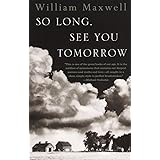
Editorial Reviews
Amazon.com review, about the author, product details.
- Publisher : Prometheus (January 1, 1994)
- Language : English
- Paperback : 442 pages
- ISBN-10 : 0879758538
- ISBN-13 : 978-0879758530
- Item Weight : 1.34 pounds
- Dimensions : 6 x 1.3 x 9 inches
- #506 in Science Essays & Commentary (Books)
About the author
Martin gardner.
For 25 of his 95 years, Martin Gardner wrote 'Mathematical Games and Recreations', a monthly column for Scientific American magazine. These columns have inspired hundreds of thousands of readers to delve more deeply into the large world of mathematics. He has also made significant contributions to magic, philosophy, debunking pseudoscience, and children's literature. He has produced more than 60 books, including many best sellers, most of which are still in print. His Annotated Alice has sold more than a million copies. He continues to write a regular column for the Skeptical Inquirer magazine.
Customer reviews
Customer Reviews, including Product Star Ratings help customers to learn more about the product and decide whether it is the right product for them.
To calculate the overall star rating and percentage breakdown by star, we don’t use a simple average. Instead, our system considers things like how recent a review is and if the reviewer bought the item on Amazon. It also analyzed reviews to verify trustworthiness.
Reviews with images

- Sort reviews by Top reviews Most recent Top reviews
Top reviews from the United States
There was a problem filtering reviews right now. please try again later..
Top reviews from other countries
- Amazon Newsletter
- About Amazon
- Accessibility
- Sustainability
- Press Center
- Investor Relations
- Amazon Devices
- Amazon Science
- Start Selling with Amazon
- Sell apps on Amazon
- Supply to Amazon
- Protect & Build Your Brand
- Become an Affiliate
- Become a Delivery Driver
- Start a Package Delivery Business
- Advertise Your Products
- Self-Publish with Us
- Host an Amazon Hub
- › See More Ways to Make Money
- Amazon Visa
- Amazon Store Card
- Amazon Secured Card
- Amazon Business Card
- Shop with Points
- Credit Card Marketplace
- Reload Your Balance
- Amazon Currency Converter
- Your Account
- Your Orders
- Shipping Rates & Policies
- Amazon Prime
- Returns & Replacements
- Manage Your Content and Devices
- Recalls and Product Safety Alerts
- Conditions of Use
- Privacy Notice
- Consumer Health Data Privacy Disclosure
- Your Ads Privacy Choices
The Best Books of 2021
This Year's Must-Reads
Gift Guides
The Ten Best Science Books of 2021
From captivating memoirs by researchers to illuminating narratives by veteran science journalists, these works affected us the most this year
Joe Spring , Bridget Alex , Riley Black , Dan Falk and Katrina Miller
:focal(700x527:701x528)/https://tf-cmsv2-smithsonianmag-media.s3.amazonaws.com/filer_public/a0/09/a009d531-d145-4a67-b0fb-f5a8268401fe/inarticle-science-books2021-1400w.jpg)
This year the news cycle was dominated again by stories about Covid-19, and rightly so, but other big discoveries were made throughout the sciences. NASA landed another rover on Mars, researchers discovered a new possible species of human, and scientists found ways climate change is influencing the evolution of animals—all topics that may lend themselves to future books.
In 2021, with one year of the battle against the coronavirus behind us, several books came out related to the pandemic. One of those books, The Premonition , by Michael Lewis, is on this list. Another important book that has bearing on how we fight disease, The Code Breaker , by Walter Isaacson, is instead listed among Smithsonian scholars ’ picks of the best books of the year. (We didn’t want to review it a second time here.) The books we have selected include dispatches from researchers on their scientific quests to search for an elusive physics equation and learn about the connections betwen trees and in-depth narratives from veteran science journalists exploring everything from solutions to major environmental problems to the benefits of sweat. With so many informative and entertaining works to choose from, it was hard to pick just ten, but these are the books that influenced our thinking the most in 2021.
Under a White Sky:The Nature of the Future , by Elizabeth Kolbert
Pulitzer Prize winner Elizabeth Kolbert investigates the wild ways scientists are solving complicated environmental problems in Under a White Sky . As Kolbert notes, humans have directly transformed more than half of the ice-free land on Earth, and indirectly transformed the other half—with many negative consequences in need of fixing. She takes the reader to a canal near Chicago, where officials have electrified the water so damaging invasive carp don’t make their way up the waterway and into the Great Lakes. She heads to Hawaii and Australia, where marine biologists are trying to engineer super corals that can withstand rising water temperatures to save reefs. And she details a geoengineer’s plan to pump diamond dust into the atmosphere to reflect sunlight and reduce the impact of climate change. Late in the book, she talks to Dan Schrag, a geologist who helped set up Harvard’s geoengineering program. He says, “I see a lot of pressure from my colleagues to have a happy ending. People want hope. And I’m like, ‘You know what? I’m a scientist. My job is not to tell people the good news. My job is to describe the world as accurately as possible.’” And that is exactly what Kolbert does in her book. She paints a realistic picture of exactly where we’re at. ( Joe Spring )
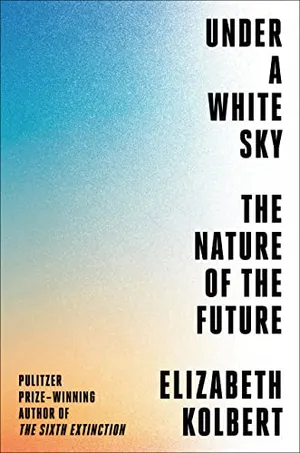
Under a White Sky: The Nature of the Future
That man should have dominion “over all the earth, and over every creeping thing that creepeth upon the earth” is a prophecy that has hardened into fact. So pervasive are human impacts on the planet that it’s said we live in a new geological epoch: the Anthropocene. In Under a White Sky , Elizabeth Kolbert takes a hard look at the new world we are creating.
The Premonition: A Pandemic Story , by Michael Lewis
The Premonition , by Michael Lewis, is a thriller, though you know from the start its heroes lose. The book follows several public servants and scientists who saw Covid-19 coming, and did everything within their powers to stop the virus from spreading in the United States. Lewis sticks to his brand: He parachutes readers into the lives of unconventional thinkers who challenged so-called experts. In earlier works, those insiders were Wall Street traders and pro-baseball scouts ( The Big Short and Moneyball , respectively). The Premonition’s antagonists are high-ranking government officials that ignore or muzzle our heroes, and bureaucratic systems that pose barriers to their success. In Part I, Lewis recounts the protagonists’ backstories, including a public health officer once damned to hell by hometown church leaders for attending medical school; a microbiologist who injected an Ebola cousin into the hearts of live pythons; and the Wolverines—a covert group of medical and military government insiders pushing pandemic preparedness. In Part II, mostly set in early 2020, the characters meet and try to contain Covid. Lewis’ account then becomes a maddening page-turner, as politics, optics and profits thwart our heroes and allow the virus to rampage. ( Bridget Alex )
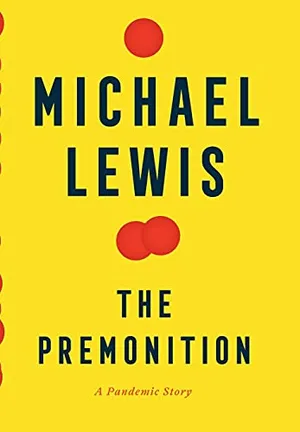
The Premonition: A Pandemic Story
Michael Lewis’s taut and brilliant nonfiction thriller pits a band of medical visionaries against the wall of ignorance that was the official response of the Trump administration to the outbreak of COVID-19.
Finding the Mother Tree: Discovering the Wisdom of the Forest , by Suzanne Simard
Forest ecologist Suzanne Simard penned our favorite book by a scientist this year with her deeply personal and engaging Finding the Mother Tree: Discovering the Wisdom of the Forest . Simard grew up in Canada in a logging family and, at age 20, worked as a seasonal employee for a logging company. But even early on, she had a sense that clear-cutting forests and poisoning the earth so monocultures could grow was the wrong approach. Simard suspected that forests were made up of interconnected entities that helped each other out, and so she pursued a career in science—studying silviculture for the Forest Service and eventually earning a PhD in forest sciences at Oregon State University. In experiments, she documented that birch and Douglas fir trees traded carbon underground. She established that the forest is a “ wood-wide web ,” with plants exchanging nutrients and chemical signals via their roots and fungal networks, and found that large old trees, or “ Mother Trees ,” were at the center of these networks, often helping their offspring.
Simard’s discoveries have implications for how governments should manage forests. Clear-cutting swaths and suppressing all but the desired species may not be the best approach; the ecologist instead argues for leaving Mother Trees and enabling plants to grow together and support each other. But Simard’s science alone isn’t the reason this book impresses. Throughout it, she shares personal stories as she embarks on her scientific quest—her close relationship with her brother, the breakdown of her marriage and her battle with breast cancer. In the midst of all this, Simard continues to push the limits of what is known about how forests work. She brings the reader with her—to scientific conferences where she speaks about research that many in the audience discount, to her lab at the University of British Columbia where she does field experiments with graduate students and to forests in western Canada where grizzly bears roam. By crafting a narrative that incorporates so many personal and professional relationships, she shows how connections as intricate as the root and fungal network beneath the forest floor shaped her scientific journey. ( J.S. )
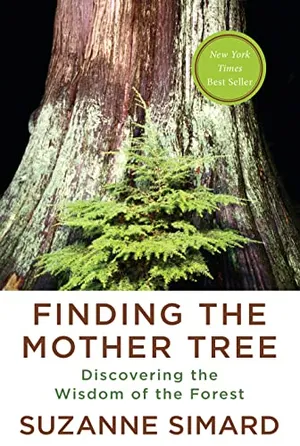
Finding the Mother Tree: Discovering the Wisdom of the Forest
Suzanne Simard brings us into her world, the intimate world of the trees, in which she brilliantly illuminates the fascinating and vital truths--that trees are not simply the source of timber or pulp, but are a complicated, interdependent circle of life.
The Joy of Sweat: The Strange Science of Perspiration , by Sarah Everts
We are all sweating, at least a little, all the time. That’s a good thing. For one thing, sweat keeps our hot-running mammalian bodies from overheating—but there’s much more to the salty discharge than that. In The Joy of Sweat , science journalist Sarah Everts has composed a strange and wonderful tribute to the bodily effluvia that keep us cool and yet carry so much information about ourselves. Sweat, Everts writes, is “an oddly flamboyant way to control body temperature.” Every person has two to five million sweat pores, part of a built-in temperature control system. But as Everts tracks the natural and cultural history of sweat—from the ways other animals cool down to New Jersey scent manufacturers and Russian speed dates based on body odor—it comes to be so much more. Sweat gives us personal scents that play a role in attraction and may carry signals that we are sick. As the repeated reinvention of the sauna hints, sometimes it just feels good to have a vigorous sweat. What starts as an exploration turns into an ode to our ever-present secretions. “We’re going to have to learn as a species to appreciate our sweat,” Everts writes, “and, perhaps, to embrace sweating even more than we already do.” ( Riley Black)
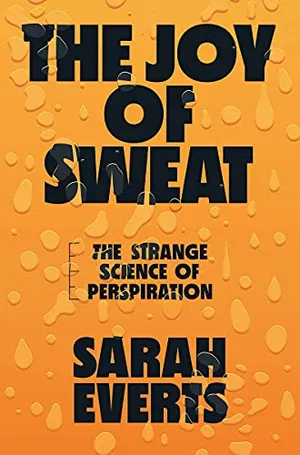
The Joy of Sweat: The Strange Science of Perspiration
Sweating may be one of our weirdest biological functions, but it’s also one of our most vital and least understood. In The Joy of Sweat , Sarah Everts delves into its role in the body—and in human history.
The God Equation: The Quest for a Theory of Everything , by Michio Kaku
In The God Equation , theoretical physicist Michio Kaku writes about his almost lifelong mission to find what he calls the “Holy Grail of physics,” a “theory of everything.” His ultimate goal is to write an equation that encompasses the whole of physics and that can explain everything from the Big Bang to the end of the universe. Such an idea started with Isaac Newton and stumped Albert Einstein, who couldn’t come up with a theory that would unify all of the forces at play. If that all sounds too heavy, rest assured that Kaku makes it approachable by taking the reader along on his journey and writing about science in clean, concise language.
Kaku has sought out a grand equation since, at eight years old, he saw a photo of Einstein’s desk and learned in the caption the great scientist couldn’t finish the work he started. He transitions from that anecdote to history, introducing the reader to the ideas of the Greeks and Newton. As Kaku moves through the scientists that uncovered the major forces of the world through equations, he drives home to the reader the importance of such milestones by detailing the technologies that resulted from the findings. Newton’s laws were used to perfect the steam engine. Mathematician James Clerk Maxwell’s equation on waves was tested by physicist Heinrich Hertz in 1886—using a spark and a coil of wire—and led to the unveiling of radio by Guglielmo Marconi in 1894. Eventually the history and Kaku’s quest to find “The God Equation” lead to string theory, the concept that the universe is not made of point particles but of tiny, unseen threads that vibrate with a note corresponding to a subatomic particle. That theory is untested, and Kaku has skin in the game; he started studying string theory in 1968. But neither are reasons not to read the book, as it is at its heart a clear and engaging story of a difficult scientific quest. ( J.S. )
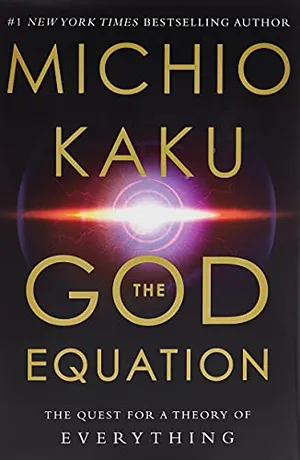
The God Equation: The Quest for a Theory of Everything
When Newton discovered the law of gravity, he unified the rules governing the heavens and the Earth. Since then, physicists have been placing new forces into ever-grander theories.
Fuzz: When Nature Breaks the Law , by Mary Roach
Of all of the authors on our list this year, Mary Roach is the one we most want to have a beer with. In her amusing book Fuzz , she interviews and accompanies experts—from a wildlife biologist tracking mountain lions to a biowarfare specialist studying toxic peas—to learn how they deal with instances of animals and plants “breaking the law.” Roach heads to Colorado to find out whether bears can be prevented from rummaging through garbage and breaking into homes, to India to find out why elephants kill villagers, and to Canada to see how “danger trees” that could fall and kill hikers are brought down. The book is packed with quirky facts and wild from-the-field dispatches. Her discoveries range from the lighthearted—bears in Minnesota once raided a large supply of MREs, “which bears apparently enjoy more than soldiers do”—to the macabre—effigies, or dead hanging birds, were strung up near debris recovered after 9/11 and placed at a landfill. The effigies were meant to prevent gulls from scavenging body parts as inspectors sorted through the wreckage for remains.
Roach details each subject with her characteristic wit and packs the text with unsettling stats and examples. Did you know 40,000 people die every year from snakebites in India? Or that in one breeding season, 200 men spent six to seven hours a day clubbing and killing 80,000 albatross on Midway Atoll that authorities wanted to prevent from colliding with airplanes? Throughout her journey, Roach documents human responses to plant and animal “crimes,” from measures that are comical to others more disturbing, leaving the reader occasionally shocked, and always entertained. ( J.S. )
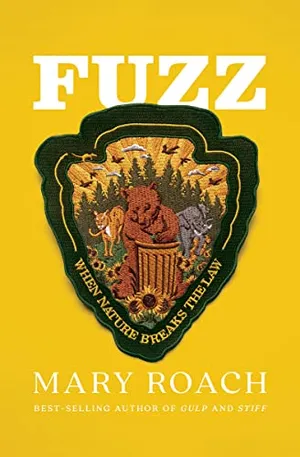
Fuzz: When Nature Breaks the Law
What’s to be done about a jaywalking moose? A bear caught breaking and entering? A murderous tree? Three hundred years ago, animals that broke the law would be assigned legal representation and put on trial. These days, as New York Times best-selling author Mary Roach discovers, the answers are best found not in jurisprudence but in science: the curious science of human-wildlife conflict, a discipline at the crossroads of human behavior and wildlife biology.
The Disordered Cosmos: A Journey Into Dark Matter, Spacetime, & Dreams Deferred , by Chanda-Prescod Weinsten
Theoretical cosmologist Chanda Prescod-Weinstein begins her visionary book The Disordered Cosmos with a tale about the origin of human existence that establishes our role in the universe as both knowledge keepers and seekers. Prescod-Weinstein then masterfully communicates her deep admiration of the night sky, what is known about the structure of space and what is left to discover about the cosmos. Throughout the book, she weaves groundbreaking discoveries made in physics with pivotal moments from her own career as the first Black woman to hold a tenure-track faculty position in theoretical cosmology—a journey to decipher the universe in a field that too often perpetuates harm in ways that are both racist and sexist. She dives into the historical context of scientific breakthroughs, challenges the notion of who gets to be named a scientist and asks what responsibility researchers owe to society. In the same way Prescod-Weinstein teaches that matter shapes the spacetime around it, she also details how the choices physicists make shape societal futures. The Disordered Cosmos is a fierce reminder that science does not exist in a vacuum; rather, it is a practice firmly rooted in humanity—and access to the night sky is perhaps the most fundamental human right of all. The book is a love letter to the wondrous universe we call home, and an urge to think critically about how we explore its depths. ( Katrina Miller )
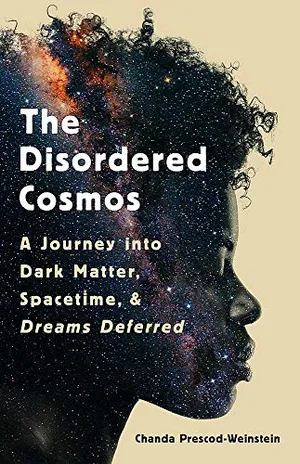

The Disordered Cosmos: A Journey into Dark Matter, Spacetime, and Dreams Deferred
From a star theoretical physicist, a journey into the world of particle physics and the cosmos—and a call for a more just practice of science.
Deep Time: A Journey Through 4.5 Billion Years of Our Planet , by Riley Black
Our top pick for a coffee table book this year is Riley Black’s Deep Time . Conceiving of the stretch of time since the formation of the universe is difficult. This book helps the reader do so by picking out key historical moments—like the dawn of the dinosaurs and the disappearance of Doggerland, connecting Great Britain to continental Europe—and offering digestible explanations for them with compelling imagery. Black is an expert guide as she has written several books about paleontology—and articles on the subject for Smithsonian for years. But this book doesn’t just stick to fossils and dinosaurs, it also covers key concepts in astronomy (The Hubble Deep Field), geology (the formation of the Grand Canyon) and biology (mitochondria), all in chronological order. For example, an entry titled “Tongue stones” with the accompanying date of 450 million years ago—the beginning of sharks’ existence on Earth—describes the evolution of how European experts thought about shark teeth, and how study of the remnants led to a key scientific concept. Black explains that naturalists originally believed such fossils were the petrified tongues of serpents. Not until a great white shark was brought to an anatomist in 1666 did experts imagine that the relics came from ancient sharks—and that the teeth must have drifted down to the seafloor and been covered by sediment. (Many Indigenous cultures had already identified fossils as coming from animals that lived long before.) That realization led to the geological principle now known as superposition—in layers of rock, the oldest are at the bottom. An anatomist’s 1668 sketch of a shark, an image of a great white shark and a photo of fossilized shark teeth dating from the Upper Cretaceous illustrate this entry. The book consists of 50 such informative entries, which allow the reader to grasp how scientists learned about key milestones in the evolution of our planet. ( J.S. )
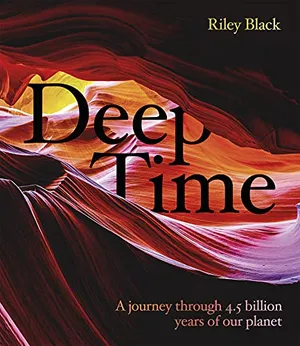
Deep Time: A journey through 4.5 billion years of our planet
Deep time is the timescale of the geological events that have shaped our planet. Whilst so immense as to challenge human understanding, its evidence is nonetheless visible all around us.
Life’s Edge: The Search for What It Means to Be Alive , by Carl Zimmer
We seem to intuitively know the difference between living things and inorganic matter—but as award-winning science writer Carl Zimmer makes abundantly clear in Life’s Edge , that boundary is not as sharp as one might imagine. Is a blood cell alive? What about a virus? Or a fertilized egg? The notion of death turns out to be equally fuzzy. Tiny tardigrades that grow to no more than one-fifteenth of an inch can be dried out and frozen, but add water and warmth and they spring back to life after years or even decades. Scientists know life took hold on our planet some 3.5 billion years ago, based on the oldest known fossils—but how exactly did it happen? Zimmer revisits a famous experiment carried out in the early 1950s by scientists who tried to simulate the conditions thought to prevail on the early Earth. While no creatures crawled out of their apparatus, the experiment did produce amino acids, which are among life’s building blocks. Zimmer also explores a recent idea known as assembly theory, which tries to give a precise measure of the complexity of chemical compounds as a way of honing in on life’s origins. And yet, no precise moment when chemistry gives rise to biology has been found. After reading Zimmer’s engaging book, the reader might even wonder if categories like “alive” and “not alive” are labels we impose on nature, rather than objective features of the world. ( Dan Falk )
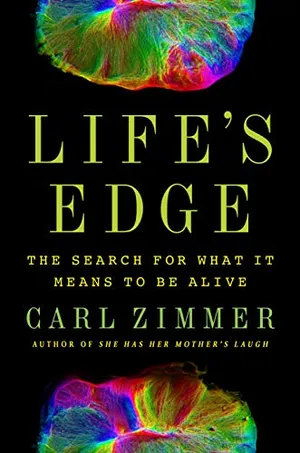
Life's Edge: The Search for What It Means to Be Alive
We all assume we know what life is, but the more scientists learn about the living world—from protocells to brains, from zygotes to pandemic viruses—the harder they find it is to locate life’s edge.
Beloved Beasts: Fighting for Life in an Age of Extinction , by Michelle Nijhuis
In Beloved Beasts , Michelle Nijhuis takes a compelling look at the history of the conservation movement since the late 19th century. The author weaves an intricate story by detailing the efforts of key conservationists—complex individuals who Nijhuis writes sometimes “did the wrong things for the right reasons, and the right things for the wrong reasons.” The reader learns of William Temple Hornaday, who killed a number of rare bison in the West in 1886 for a D.C. diorama before starting a captive breeding program to save the species. Nijhuis shares the story of Rosalie Edge , a bird lover who fought the Audubon Society in the 1920s and 1930s to gain more support for raptors and bought Hawk Mountain, a key migration spot in Pennsylvania that has become an important place for counting birds. As Nijhuis introduces new characters, from Rachel Carson to Aldo Leopold, she establishes their connections to conservationists that preceded them and packs the book with interesting facts. Did you know, for example, that the U.S. adopted DDT during World War II after losing access to the Japanese grown chrysanthemum that had been a source of the insecticide pyrethrum? Or that most species protection by state wildlife agencies is funded by hunting license fees and taxes on hunting equipment? Today, as Nijhuis writes, more than one million species are threatened with extinction, and in the last two decades more than 1,800 conservationists have been murdered protecting species and habitat. To better understand how conservation might move forward to address these dire conditions, it helps to have this comprehensive history detailing the failures and successes of notable practitioners. ( J.S. )
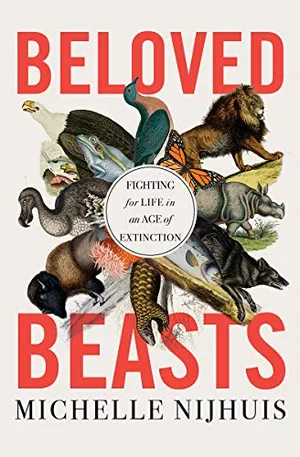
Beloved Beasts: Fighting for Life in an Age of Extinction
In the late nineteenth century, humans came at long last to a devastating realization: their rapidly industrializing and globalizing societies were driving scores of animal species to extinction. In Beloved Beasts , acclaimed science journalist Michelle Nijhuis traces the history of the movement to protect and conserve other forms of life.
Get the latest Science stories in your inbox.
A Note to our Readers Smithsonian magazine participates in affiliate link advertising programs. If you purchase an item through these links, we receive a commission.
Joe Spring | READ MORE
Joe Spring is the associate digital science editor for Smithsonian magazine.
Bridget Alex | | READ MORE
Bridget Alex is an anthropologist and science writer based in Pasadena, California. Her stories can be found in outlets including Discover , Science , and Atlas Obscura . She tweets @bannelia .
/https://tf-cmsv2-smithsonianmag-media.s3.amazonaws.com/accounts/headshot/RileyBlack.png)
Riley Black | | READ MORE
Riley Black is a freelance science writer specializing in evolution, paleontology and natural history who blogs regularly for Scientific American .
Dan Falk | | READ MORE
Dan Falk is a science journalist based in Toronto. His books include The Science of Shakespeare and In Search of Time .
Katrina Miller | READ MORE
Freelance Journalist
Science Essay
Science Essay Examples
8 Impressive Science Essay Examples for Students
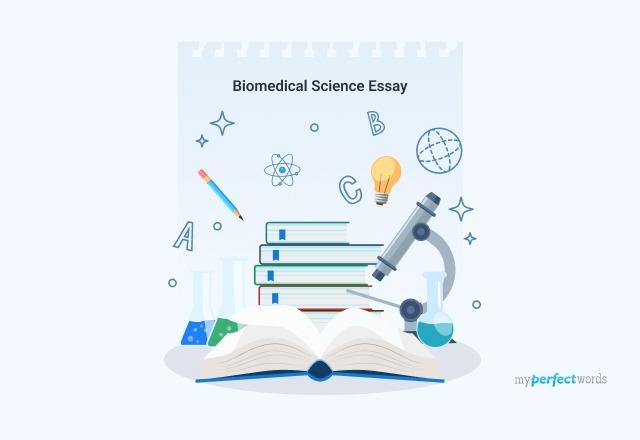
People also read
Learn How to Write an A+ Science Essay
150+ Engaging Science Essay Topics To Hook Your Readers
Science Fiction Essay: Examples & Easy Steps Guide
Essay About Science and Technology| Tips & Examples
Essay About Science in Everyday Life - Samples & Writing Tips
Check Out 5 Impressive Essay About Science Fair Examples
Are you looking for examples of science essays?
We all know that writing a good science essay can be tough, whether you are a school or college student. It's hard to know where to start and how to make your essay interesting.
But there is a solution! Reading some good examples can help!
Below are eight science essay examples you can use as inspiration for your own science essay.
- 1. Science Essay Examples
- 2. Science Essay Writing Tips
Reading sample essays is a great way to get a sense of what makes for a good science essay. You can learn from the way experienced writers approach the task.
So check these out!
Science Essay Examples For Students
Science Essay Example For Students - PDF Example
Science Essay Examples For College Students
Science Essay Example For High School Students
Natural Science Essay Examples
Biomedical Science Essay Example - Free PDF
Biology Essay Example - Science Essay Samples
Environmental Science Essay Example - Sample PDF
Other Science Essay Samples
Computer Science Essay Example - PDF Sample
Forensic Science Essay Example - PDF Download
Science Essay Writing Tips
Now that you have read through some great science essay examples, it's time to learn how to write a science essay yourself.
If you're a student of the sciences, you probably have some experience with science essays. Whether you love them or hate them, there's no denying that science essays are a part of life for anyone who wants to pursue a career in science.
The good news is that, with a little practice, writing a science essay can be an easy and rewarding experience.
The following tips will help you write the best science essay possible.
Pick a Good Topic
The first step to writing a great science essay is to pick a good topic. Try to pick something you're interested in and know at least something about. A good topic will make the writing process much easier and more enjoyable.
Here are a few examples of good science essay topics.
- The Benefits of Organic Foods
- The Advancements in Stem Cell Research
- The Importance of Recycling
- The Negative Effects of Pollution
- The Positive Effects of Exercise
- Ethical Issues in Scientific Experimentation
- The Advantages and Disadvantages of Alternative Energy Sources
- The Dangers of Smoking
- The Benefits of a Healthy Diet
- How to Save the Environment
Need more topics? Check out this blog with more than 150 interestin g science essay topics .
Do Your Research
Before you start writing any essay, it's important to do your research. This is especially true for science essays, where you need to have a strong understanding of the topic you're writing about.
The best way to do your research is to gather information from reliable sources. Make sure to read articles, books, and other materials from experts in the field. You will get a better understanding of the topic, and it will help you write a more persuasive essay.
This will give you material to work with when it comes time to write your essay.
In short, once you've chosen a topic, it's time to do some research. Gather as much information as you can about your topic from reliable sources.
Make an Outline
Now that you have all of your research gathered, it's time to start organizing it into an outline for your essay.
In the outline, list all of the main points you want to make and the supporting evidence you found through research.
Additionally, decide the structure your essay should follow. Having an outline will help you structure your thoughts and keep your essay on track.
Start Your First Draft
Once you’ve done your research and made an outline, start working on the first draft of your essay.
Write Your Introduction
Your introduction should introduce the reader to your topic and give some background information on the scientific concepts involved.
It should also include a thesis statement—a brief statement that summarizes what you'll discuss in your essay.
Write Your Body Paragraphs
Each body paragraph should focus on one main idea related to your thesis statement. A body paragraph begins with a topic sentence, which tells the reader what the paragraph is about.
Moreover, you should include evidence from your research to support each main idea.
In other words, the body paragraph consists of a topic sentence and evidence. It also shows how the evidence is related to the main thesis of the essay.
Write the Conclusion
In your conclusion, provide a summary of everything that you've discussed in your essay and reiterate your thesis statement.
Make sure you don’t introduce any new points in the conclusion. However, you may leave the reader with food for thought.
Edit and Revise
After you've written your first draft, take some time to edit and revise it.
Make sure each sentence is clear and concise and that all of your ideas are properly supported by evidence.
Editing and revision are two of the most important steps in the writing process.
Editing is the process of reviewing your work to make sure its grammar and style are correct. Revision is the process of revisiting your work and making changes to improve it.
Editing and revision are essential for producing a high-quality piece of writing. So make sure you don't skip this step!

Tough Essay Due? Hire Tough Writers!
Get Feedback From Someone Else
Once you're satisfied with your edit, ask someone else (preferably an experienced science essay writer) to read it over and give their feedback.
Having your essay proofread by others can help you pick up on mistakes that you might have missed. It can also help you identify areas where your argument may be unclear or could use more evidence to support your claims.
Getting feedback is an important part of the writing process, so make sure you take the time to do it.
Finalize Your Essay
Finally, polish up your formatting and page layout, and you're good to go! Make sure that your essay follows the formatting guidelines provided by your instructor.
Here are some general formatting rules:
- Use standard font, such as Times New Roman
- Set the font size to 12 point
- Double-space your essay
- Include page numbers
- 1-inch margins on both sides
- Indent the first line of every paragraph
By following these simple tips, you can write a great science essay without too much trouble. Just remember to choose a good topic, do your research, make an outline, and edit & revise your final draft before submitting it.
In conclusion,
Writing a science essay can be daunting, but it doesn't have to be. With the samples and tips provided in this blog, you will surely ace it!
Do you need help writing a science essay? Our science essay writing service will write it for you!
Our essay writing service consists of experienced writers who can help you write a high-quality essay that will get you the grade you deserve. We always meet deadlines and provide affordable prices. You can also use our essay typer to write your essays for free.

Write Essay Within 60 Seconds!

Betty is a freelance writer and researcher. She has a Masters in literature and enjoys providing writing services to her clients. Betty is an avid reader and loves learning new things. She has provided writing services to clients from all academic levels and related academic fields.

Paper Due? Why Suffer? That’s our Job!
Keep reading


- Online Calculus Tutors
- Online Geometry Tutors
- Online Algebra Tutors
- Online Trigonometry Tutors
- Online Statistics Tutors
- Online Chemistry Tutors
- Online Macroeconomics Tutors
- Online English Tutors
- Online Physics Tutors
- Online Computer Science Tutors
- Online Accounting Tutors
- Online Biology Tutors
- Online Business Studies Tutors
- Online Finance Tutors
- Online Programming Tutors
- Online Management Tutors
- Online Science Tutors
- Year 2 Maths
- Year 3 Maths
- Year 4 Maths
- Year 5 Maths
- Year 6 Maths
- Year 2 English
- Year 3 English
- Year 4 English
- Year 5 English
- Year 6 English
- Year 7 Maths
- Year 8 Maths
- Year 9 Maths
- Year 10 Maths
- Year 10 Advance Maths
- Year 7 English
- Year 8 English
- Year 9 English
- Year 10 English
- Year 11 General Maths
- Year 11 Chemistry SA,NT
- Year 11 General Mathematics VIC
- Year 11 Mathematical Methods
- Year 11 Mathematics Standard
- Year 11 Chemistry ACT
- Year 11 Mathematics Extension 1
- Year 11 Mathematical Methods SA, NT
- Year 11 Mathematical Methods VIC
- Year 11 Mathematical Applications
- Year 11 Chemistry QLD
- Year 11 Literature ATAR
- Year 11 English - QLD
- Year 11 English Advanced NSW
- Year 11 EALD Level 3
- Year 11 English Language
- Year 11 Essential English M
- Year 11 Essential Skills TAS
- Year 11 Essential English
- Year 11 Bridging EAL
- Year 11 EALD Level 1
- Year 11 Stage 1 Essential English
- Year 11 English General
- Year 11 Mathematics Advanced
- Year 11 EAL
- Year 11 English Standard
- Year 11 EALD ATAR
- Year 12 Mathematics Standard
- Year 12 Further Mathematics
- Year 12 Mathematics Applications
- Year 12 Mathematics Extension 1
- Year 12 Mathematics Methods
- Year 12 Mathematics Advanced
- Year 12 Mathematics Methods VIC
- Year 12 Mathematics Methods - TAS
- Year 12 General Mathematics TAS
- Year 11 English T
- Year 12 Mathematical Methods - QLD
- Year 12 General Mathematics SA, NT
- Year 11 Foundation English
- Year 11 English Studies
- Year 11 Literacy Short Course
- Year 11 English Preliminary
- Year 12 English ATAR
- Year 11 EAL/D
- Year 12 English Extension 2
- Year 12 EAL/D
- Year 12 EALD ATAR WA
- Year 12 English Foundation
- Year 12 English Extension 1
- Year 12 Literature
- Year 12 Stage 2 Essential English
- Year 12 English Literature ATAR
- Year 12 Stage 2 English
- Year 12 EALD Level 2 - TAS
- Year 12 English Advanced NSW
- Year 12 Chemistry VIC
- Year 12 English Language
- Year 12 English Literature T - ACT
- Year 12 English Foundation WA
- Year 12 English Standard NSW Learning Programs
- Year 11 Chemistry WA
- Year 11 Chemistry - VIC
- Year 12 Chemistry - QLD
- Year 12 Chemistry - TAS
- Year 12 Chemistry - WA
- Year 12 Chemistry - NSW
- Year 12 Chemistry - ACT
- Online Tutors in Sydney
- Online Tutors in Melbourne
- Online Tutors in Brisbane
- Online Tutors in Gold Coast
- Online Tutors in Perth
- Online Tutors in Canberra
- Online Tutors in Adelaide
- Online Tutors in Newcastle
- HSC Papers 2019
- HSC Papers 2018
- HSC Papers 2017
Book a Free Demo
Math Calculus Geometry Algebra Trigonometry Statistics Chemistry Economics Macroeconomics English Physics Computer Science Accounting Biology Business Studies Finance Programming Management Science Year 3 Year 4 Year 5 Year 6 Year 7 Year 8 Year 9 Year 10 Year 11 Year 12 College
Search Here
Recent posts.
- General Achievement Test Australia
- ESL vs English Tutoring – What Makes Them Different?
- Know the Grading System in Australia
- GED vs HiSET: All You Need To Know
- HSPT vs PSAT: Which One Is Beneficial For You?
- WordPress.org
- Documentation
- Support Forums
Essays About Science: Top 12 Examples and Prompts
Science can explain almost every aspect of our lives; if you want to write essays about science, start by reading our guide.
The word “science” comes from the Latin word Scientia or “knowledge,” It does indeed leave us with no shortage of knowledge as it advances to extraordinary levels. It is present in almost every aspect of our lives, allowing us to live the way we do today and helping us improve society.
In the 21st century, we see science everywhere. It has given us the technology we deem “essential” today, from our mobile phones to air conditioning units to lightbulbs and refrigerators. Yet, it has also allowed us to learn so much about the unknown, such as the endless vacuum of space and the ocean’s mysterious depths. It is, without a doubt, a vehicle for humanity to obtain knowledge and use this knowledge to flourish.
To start writing essays about science, look at some of our featured essay examples below.
1. The challenging environment for science in the 21st century by Nithaya Chetty
2. disadvantages of science by ella gray, 3. reflections from a nobel winner: scientists need time to make discoveries by donna strickland.
- 4. The fact of cloning by Cesar Hill
5. T. Rex Like You Haven’t Seen Him: With Feathers by Jason Farago
6. common, cheap ingredients can break down some ‘forever chemicals’ by jude coleman, 1. what is science, 2. a noteworthy scientist, 3. why is it important to study science, 4. are robots a net positive for society, 5. types of sciences, 6. science’s role in warfare.
“Open-ended, unfettered science in its purest form has, over the centuries, been pursued in the interests of understanding nature in a fundamental way, and long may that continue. Scientific ideas and discoveries have often been very successfully exploited for commercial gain and societal improvements, and much of the science system today the world over is designed to push scientists in the direction of more relevance.”
For South Africa to prosper, Chetty encourages cooperation and innovation among scientists. He discusses several problems the country faces, including the politicization of research, a weak economy, and misuse of scientific discoveries. These challenges, he believes, can be overcome if the nation works as one and with the international community and if the education system is improved.
“Technology can make people lazy. Many people are already dependent and embrace this technology. Like students playing computer games instead of going to school or study. Technology also brings us privacy issues. From cell phone signal interceptions to email hacking, people are now worried about their once private information becoming public knowledge and making profit out of video scandals.”
Gray discusses the adverse effects technology, a science product, has had on human life and society. These include pollution, the inability to communicate properly, and laziness.
She also acknowledges that technology has made life easier for almost everyone but believes that technology, as it is used now, is detrimental; more responsible use of technology is ideal.
“We must give scientists the opportunity through funding and time to pursue curiosity-based, long-term, basic-science research. Work that does not have direct ramifications for industry or our economy is also worthy. There’s no telling what can come from supporting a curious mind trying to discover something new.”
Strickland, a Nobel Prize winner, explains that a great scientific discovery can only come with ample time for scientists to research, using her work as an example. She describes her work on chirped pulse amplification and its possible applications, including removing brain tumors. Her Nobel-awarded work was done over a long time, and scientists must be afforded ample time and funding to make breakthroughs like hers.
4. The fact of cloning by Cesar Hill
“Any research into human cloning would eventually need to be tested on humans. Cloning might be used to create a “perfect human”. Cloning might have a detrimental effect family relationship. However the debate over cloning has more pros out weighting the cons, giving us a over site of the many advantages cloning has and the effects of it as well. Cloning has many ups and downs nevertheless there are many different ways in which it can be used to adapt and analyse new ways of medicine.”
Hill details both the pros and cons of cloning. It can be used for medical purposes and help us understand genetics more, perhaps even allowing us to prevent genetic diseases in children. However, it is expensive, and many oppose it on religious grounds. Regardless, Hill believes that the process has more advantages than disadvantages and is a net good.
“For the kids who will throng this new exhibition, and who will adore this show’s colorful animations and fossilized dino poop, T. rex may still appear to be a thrilling monster. But staring in the eyes of the feather-flecked annihilators here, adults may have a more uncanny feeling of identification with the beasts at the pinnacle of the food chain. You can be a killer of unprecedented savagery, but the climate always takes the coup de grâce.”
In his essay, Farago reviews an exhibition on the Tyrannosaurus Rex involving an important scientific discovery: it was a feathered dinosaur. He details the different displays in the exhibition, including models of other dinosaurs that helped scientists realize that the T-Rex had feathers.
“Understanding this mechanism is just one step in undoing forever chemicals, Dichtel’s team said. And more research is needed: There are other classes of PFAS that require their own solutions. This process wouldn’t work to tackle PFAS out in the environment, because it requires a concentrated amount of the chemicals. But it could one day be used in wastewater treatment plants, where the pollutants could be filtered out of the water, concentrated and then broken down.”
Coleman explains a discovery by which scientists were able to break down a perfluoroalkyl and polyfluoroalkyl substance, a “forever chemical” dangerous to the environment. He explains how they could break the chemical bond and turn the “forever chemical” into something harmless. This is important because pollution can be reduced significantly, particularly in the water.
Writing Prompts on Essays about Science
“Science” is quite a broad term and encompasses many concepts and definitions. Define science, explain what it involves and how we can use it, and give examples of how it is present in the world. If you want, you can also briefly discuss what science means to you personally.
Many individuals have made remarkable scientific discoveries, contributing to the wealth of knowledge we have acquired through science. For your essay, choose one scientist you feel has made a noteworthy contribution to their field. Then, give a brief background on the scientists and explain the discovery or invention that makes them essential.
Consider what it means to study science: how is it relevant now? What lessons can we learn from science? Then, examine the presence of science in today’s world and write about the importance of science in our day-to-day lives- be sure to give examples to support your points. Finally, in your essay, be sure to keep in mind the times we are living in today.

When we think of science, robots are often one of the first things that come to mind. However, there is much to discuss regarding safety, especially artificial intelligence. Discuss the pros and cons of robots and AI, then conclude whether or not the benefits outweigh the disadvantages. Finally, provide adequate evidence to reinforce your argument and explain it in detail.
From biology to chemistry to physics, science has many branches, each dealing with different aspects of the world and universe. Choose one branch of science and then explain what it is, define basic concepts under this science, and give examples of how it is applied: Are any inventions requiring it? How about something we know today thanks to scientific discovery? Answer these questions in your own words for a compelling essay.
Undoubtedly, technology developed using science has had devastating effects, from nuclear weapons to self-flying fighter jets to deadly new guns and tanks. Examine scientific developments’ role in the war: Do they make it more brutal? Or do they reduce the casualties? Make sure to conduct ample research before writing your essay; this topic is debatable.
For help with your essays, check out our round-up of the best essay checkers .
If you’re looking for inspiration, check out our round-up of essay topics about nature .

Martin is an avid writer specializing in editing and proofreading. He also enjoys literary analysis and writing about food and travel.
View all posts

25,000+ students realised their study abroad dream with us. Take the first step today
Meet top uk universities from the comfort of your home, here’s your new year gift, one app for all your, study abroad needs, start your journey, track your progress, grow with the community and so much more.

Verification Code
An OTP has been sent to your registered mobile no. Please verify

Thanks for your comment !
Our team will review it before it's shown to our readers.

- School Education /
Essay on Science: Sample for Students in 100,200 Words
- Updated on
- Oct 28, 2023

Science, the relentless pursuit of knowledge and understanding, has ignited the flames of human progress for centuries. It’s a beacon guiding us through the uncharted realms of the universe, unlocking secrets that shape our world. In this blog, we embark on an exhilarating journey through the wonders of science. We’ll explore the essence of science and its profound impact on our lives. With this we will also provide you with sample essay on science in 100 and 200 words.
Must Read: Essay On Internet
What Is Science?
Science is a systematic pursuit of knowledge about the natural world through observation, experimentation, and analysis. It aims to understand the underlying principles governing the universe, from the smallest particles to the vast cosmos. Science plays a crucial role in advancing technology, improving our understanding of life and the environment, and driving innovation for a better future.
Branches Of Science
The major branches of science can be categorized into the following:
- Physical Science: This includes physics and chemistry, which study the fundamental properties of matter and energy.
- Biological Science : Also known as life sciences, it encompasses biology, genetics, and ecology, focusing on living organisms and their interactions.
- Earth Science: Geology, meteorology, and oceanography fall under this category, investigating the Earth’s processes, climate, and natural resources.
- Astronomy : The study of celestial objects, space, and the universe, including astrophysics and cosmology.
- Environmental Science : Concentrating on environmental issues, it combines aspects of biology, chemistry, and Earth science to address concerns like climate change and conservation.
- Social Sciences : This diverse field covers anthropology, psychology, sociology, and economics, examining human behavior, society, and culture.
- Computer Science : Focused on algorithms, data structures, and computing technology, it drives advancements in information technology.
- Mathematics : A foundational discipline, it underpins all sciences, providing the language and tools for scientific analysis and modeling.
Wonders Of Science
Science has numerous applications that profoundly impact our lives and society: Major applications of science are stated below:
- Medicine: Scientific research leads to the development of vaccines, medicines, and medical technologies, improving healthcare and saving lives.
- Technology: Science drives technological innovations, from smartphones to space exploration.
- Energy: Advances in physics and chemistry enable the development of renewable energy sources, reducing reliance on fossil fuels.
- Agriculture: Biology and genetics improve crop yields, while chemistry produces fertilizers and pesticides.
- Environmental Conservation : Scientific understanding informs efforts to protect ecosystems and combat climate change.
- Transportation : Physics and engineering create efficient and sustainable transportation systems.
- Communication : Physics and computer science underpin global communication networks.
- Space Exploration : Astronomy and physics facilitate space missions, expanding our understanding of the cosmos.
Must Read: Essay On Scientific Discoveries
Sample Essay On Science in 100 words
Science, the bedrock of human progress, unveils the mysteries of our universe through empirical investigation and reason. Its profound impact permeates every facet of modern life. In medicine, it saves countless lives with breakthroughs in treatments and vaccines. Technology, a child of science, empowers communication and innovation. Agriculture evolves with scientific methods, ensuring food security. Environmental science guides conservation efforts, preserving our planet. Space exploration fuels dreams of interstellar travel.
Yet, science requires responsibility, as unchecked advancement can harm nature and society. Ethical dilemmas arise, necessitating careful consideration. Science, a double-edged sword, holds the potential for both salvation and destruction, making it imperative to harness its power wisely for the betterment of humanity.
Sample Essay On Science in 250 words
Science, often regarded as humanity’s greatest intellectual endeavor, plays an indispensable role in shaping our world and advancing our civilization.
At its core, science is a methodical pursuit of knowledge about the natural world. Through systematic observation, experimentation, and analysis, it seeks to uncover the underlying principles that govern our universe. This process has yielded profound insights into the workings of the cosmos, from the subatomic realm to the vastness of space.
One of the most remarkable contributions of science is to the field of medicine. Through relentless research and experimentation, scientists have discovered vaccines, antibiotics, and groundbreaking treatments for diseases that once claimed countless lives.
Furthermore, science has driven technological advancements that have reshaped society. The rapid progress in computing, for instance, has revolutionized communication, industry, and research. From the ubiquitous smartphones in our pockets to the complex algorithms that power our digital lives, science, and technology are inseparable partners in progress.
Environmental conservation is another critical arena where science is a guiding light. Climate change, a global challenge, is addressed through rigorous scientific study and the development of sustainable practices. Science empowers us to understand the impact of human activities on our planet and to make informed decisions to protect it.
In conclusion, science is not just a field of study; it is a driving force behind human progress. As we continue to explore the frontiers of knowledge, science will remain the beacon guiding us toward a brighter future.
Science is a boon due to innovations, medical advancements, and a deeper understanding of nature, improving human lives exponentially.
Galileo Galilei is known as the Father of Science.
Science can’t address questions about personal beliefs, emotions, ethics, or matters of subjective experience beyond empirical observation and measurement.
We hope this blog gave you an idea about how to write and present an essay on science that puts forth your opinions. The skill of writing an essay comes in handy when appearing for standardized language tests. Thinking of taking one soon? Leverage Edu provides the best online test prep for the same via Leverage Live . Register today to know more!
Amisha Khushara
With a heart full of passion for writing, I pour my emotions into every piece I create. I strive to connect with readers on a personal level, infusing my work with authenticity and relatability. Writing isn't just a skill; it's my heartfelt expression to touch hearts and minds.
Leave a Reply Cancel reply
Save my name, email, and website in this browser for the next time I comment.
Contact no. *

Connect With Us

25,000+ students realised their study abroad dream with us. Take the first step today.

Resend OTP in

Need help with?
Study abroad.
UK, Canada, US & More
IELTS, GRE, GMAT & More
Scholarship, Loans & Forex
Country Preference
New Zealand
Which English test are you planning to take?
Which academic test are you planning to take.
Not Sure yet
When are you planning to take the exam?
Already booked my exam slot
Within 2 Months
Want to learn about the test
Which Degree do you wish to pursue?
When do you want to start studying abroad.
January 2024
September 2024
What is your budget to study abroad?

How would you describe this article ?
Please rate this article
We would like to hear more.
Have something on your mind?

Make your study abroad dream a reality in January 2022 with
India's Biggest Virtual University Fair

Essex Direct Admission Day
Why attend .

Don't Miss Out
Essay on Science for Students and Children
500+ words essay on science.
Essay on science: As we look back in our ancient times we see so much development in the world. The world is full of gadgets and machinery . Machinery does everything in our surroundings. How did it get possible? How did we become so modern? It was all possible with the help of science. Science has played a major role in the development of our society. Furthermore, Science has made our lives easier and carefree.

Science in our Daily Lives
As I have mentioned earlier Science has got many changes in our lives. First of all, transportation is easier now. With the help of Science it now easier to travel long distances . Moreover, the time of traveling is also reduced. Various high-speed vehicles are available these days. These vehicles have totally changed. The phase of our society. Science upgraded steam engines to electric engines. In earlier times people were traveling with cycles. But now everybody travels on motorcycles and cars. This saves time and effort. And this is all possible with the help of Science.
Secondly, Science made us reach to the moon. But we never stopped there. It also gave us a glance at Mars. This is one of the greatest achievements. This was only possible with Science. These days Scientists make many satellites . Because of which we are using high-speed Internet. These satellites revolve around the earth every day and night. Even without making us aware of it. Science is the backbone of our society. Science gave us so much in our present time. Due to this, the teacher in our schools teaches Science from an early age.
Get the huge list of more than 500 Essay Topics and Ideas
Science as a Subject
In class 1 only a student has Science as a subject. This only tells us about the importance of Science. Science taught us about Our Solar System. The Solar System consists of 9 planets and the Sun. Most Noteworthy was that it also tells us about the origin of our planet. Above all, we cannot deny that Science helps us in shaping our future. But not only it tells us about our future, but it also tells us about our past.
When the student reaches class 6, Science gets divided into three more subcategories. These subcategories were Physics, Chemistry, and Biology. First of all, Physics taught us about the machines. Physics is an interesting subject. It is a logical subject.
Furthermore, the second subject was Chemistry . Chemistry is a subject that deals with an element found inside the earth. Even more, it helps in making various products. Products like medicine and cosmetics etc. result in human benefits.
Last but not least, the subject of Biology . Biology is a subject that teaches us about our Human body. It tells us about its various parts. Furthermore, it even teaches the students about cells. Cells are present in human blood. Science is so advanced that it did let us know even that.
Leading Scientists in the field of Science
Finally, many scientists like Thomas Edison , Sir Isaac Newton were born in this world. They have done great Inventions. Thomas Edison invented the light bulb. If he did not invent that we would stay in dark. Because of this Thomas Edison’s name marks in history.
Another famous Scientist was Sir Isaac Newton . Sir Isaac Newton told us about Gravity. With the help of this, we were able to discover many other theories.
In India Scientists A..P.J Abdul was there. He contributed much towards our space research and defense forces. He made many advanced missiles. These Scientists did great work and we will always remember them.
Customize your course in 30 seconds
Which class are you in.

- Travelling Essay
- Picnic Essay
- Our Country Essay
- My Parents Essay
- Essay on Favourite Personality
- Essay on Memorable Day of My Life
- Essay on Knowledge is Power
- Essay on Gurpurab
- Essay on My Favourite Season
- Essay on Types of Sports
Leave a Reply Cancel reply
Your email address will not be published. Required fields are marked *
Great essays in science
By martin gardner.
- 4 Want to read
- 0 Currently reading
- 0 Have read
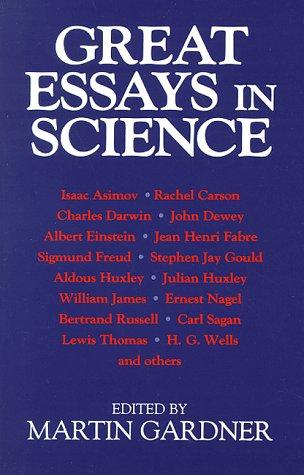
My Reading Lists:
Use this Work
Create a new list
My book notes.
My private notes about this edition:
Download Options
Check nearby libraries
- Library.link
Buy this book
This edition doesn't have a description yet. Can you add one ?
Previews available in: English
Showing 5 featured editions. View all 16 editions?
Add another edition?
Book Details
Published in.
Buffalo, N.Y
Edition Notes
"Isaac Asimov, Rachel Carson, Charles Darwin, John Dewey, Albert Einstein, Jean Henri Fabre, Sigmund Freud, Stephen Jay Gould, Aldous Huxley, Julian Huxley, William James, Ernest Nagel, Bertrand Russell, Carl Sagan, Lewis Thomas, H.G. Wells and others." Originally published as: The sacred beetle and other great essays in science. 1984.
Classifications
The physical object, community reviews (0).
- Created April 1, 2008
- 13 revisions
Wikipedia citation
Copy and paste this code into your Wikipedia page. Need help ?
Subscribe to our newsletter
150 great articles & essays: interesting articles to read online, life & death, attitude by margaret atwood, this is water by david foster wallace, why go out by sheila heti, after life by joan didion, when things go missing by kathryn schulz, 50 more great articles about life, 25 more great articles about death.

Travel & Adventure
The book by patrick symmes, shipping out by david foster wallace, death of an innocent by jon krakauer, the place to disappear by susan orlean, trapped by aron ralston, 75 more great travel articles, words and writing, on keeping a notebook by joan didion, autobiographical notes by james baldwin, how to talk about books you haven't read by pierre bayard, where do you get your ideas by neil gaiman, everything you need to know about writing by stephen king, 20 more great essays about writing, short memoirs, goodbye to all that by joan didion, seeing by annie dillard, explicit violence by lidia yuknavitch, these precious days by ann patchett, 100 more short memoirs, tennis, trigonometry, tornadoes by david foster wallace, losing religion and finding ecstasy in houston by jia tolentino, a brief history of forever by tavi gevinson, 50 more great articles about growing up, the female body by margaret atwood, the tyranny of the ideal woman by jia tolentino, grand unified theory of female pain by leslie jamison, 50 more great articles about women, revelations about sex by alain de botton, safe-sex lies by meghan daum, my life as a sex object by jessica valenti, sex is a coping mechanism by jill neimark, 50 more great articles about sex.
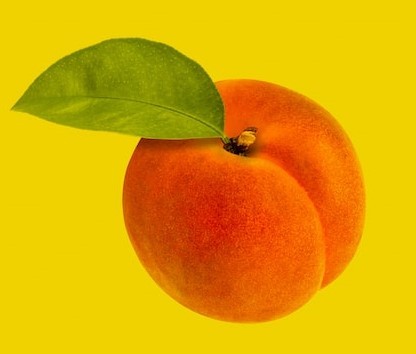
The Women's Movement by Joan Didion
Bad feminist by roxane gay, what the hell am i (and who the hell cares) by neko case, 10 more great articles about feminism, men explain things to me by rebecca solnit, the end of men by hanna rosin, 10 more great articles about men, linguistics/language, who decides what words mean by lane greene, the world’s most efficient languages by john mcwhorter, tense present by david foster wallace, 40 more great articles about linguistics, pigeon wars by jon mooallem, violence of the lambs by john j. sullivan, 25 more great articles about animals, quitting the paint factory by mark slouka, nickel and dimed by barbara ehrenreich, shop class as soul craft by matthew b. crawford, 40 more great articles about work, to have is to owe by david graeber, why does it feel like everyone has more money than you by jen doll, the austerity delusion by paul krugman, the blind side by michael lewis, 25 more great articles about money, science & technology, how life (and death) spring from disorder by philip ball, a compassionate substance by philip ball, your handy postcard-sized guide to statistics by tim harford, on being the right size by j. b. s. haldane, 100 more great science & tech. articles, the environment, the fate of earth by elizabeth kolbert, state of the species by charles c. mann, the real reason humans are the dominant species by justin rowlatt and laurence knight, 30 more great reads about the environment, climate change, losing earth by nathaniel rich, sixty years of climate change warnings by alice bell, beyond catastrophe by david wallace wells, we should fix climate change — but we should not regret it by thomas r. wells, 35 more great climate change articles, the tinkering of robert noyce by tom wolfe, creation myth by malcolm gladwell, mother earth mother board by neal stephenson, i saw the face of god in a semiconductor factory by virginia heffernan, 50 more great articles about computers, the internet, forty years of the internet by oliver burkeman, escape the matrix by virginia heffernan, you are the product by john lanchester, a nation of echo chambers by will leitch, the long tail by chris anderson, 50 more articles about the internet.

Social Media
The machine always wins by richard seymour, my instagram by dayna tortorici, why the past 10 years of american life have been uniquely stupid by jonathan haidt, 15 more articles about social media, m by john sack, blackhawk down by mark bowden, hiroshima by john hersey, the ai-powered, totally autonomous future of war is here by will knight, 35 more great articles about war, the hinge of history by joan didion, how america lost its mind by kurt andersen, the problem with facts by tim harford, constant anxiety won't save the world by julie beck, 75 more great articles about politics, crime & punishment, the caging of america by adam gopnik, the crooked ladder by malcolm gladwell, cruel and unusual punishment by matt taibbi, 20 more great articles about crime, the body in room 348 by mark bowden, the art of the steal by joshua bearman, true crime by david grann, the crypto trap by andy greenberg, 35 more great true crime stories, does it help to know history by adam gopnik, 1491 by charles c. mann, a history of violence by steven pinker, the worst mistake in history by j. diamond, 25 more great articles about history, notes of a native son by james baldwin, how to slowly kill yourself and others in america by kiese laymon, magic actions by tobi haslett, 30 more great essays about race, cities and ambition by paul graham, here is new york by e. b. white, 25 more great articles about cities, we are all confident idiots by david dunning, fantastic beasts and how to rank them by kathryn schulz, the problem with p-values by david colquhoun, what is the monkeysphere by david wong, 100 more great psychology articles, love & relationships, love by lauren slater, masters of love by emily esfahani smith, this is emo by chuck klosterman, 50 more great articles about relationships, what makes us happy by joshua shenk, social connection makes a better brain by emily esfahani smith, the real roots of midlife crisis by jonathan rauch, 20 more great articles about happiness, success & failure, you can do it, baby by leslie garrett, what drives success by amy chua and jed rubenfeld, the fringe benefits of failure, and the importance of imagination by j.k. rowling, 10 more great articles about success, health & medicine, somewhere worse by jia tolentino, race to the vaccine by david heath and gus garcia-roberts, an epidemic of fear by amy wallace the score by atul gawande, 50 more great articles about health, mental health, darkness visible by william styron, the epidemic of mental illness by marcia angell, surviving anxiety by scott stossel, 50 more great articles about mental health, the moral instinct by steven pinker, not nothing by stephen cave, the greatest good by derek thompson, 15 more great articles about ethics, getting in by malcolm gladwell, learning by degrees by rebecca mead, the end of the english major by nathan heller, 20 more great articles about education, the string theory by david foster wallace, the istanbul derby by spencer hall, the kentucky derby is decadent and depraved by hunter s. thompson, 50 more great sports articles, why does music make us feel good by philip ball, one more time by elizabeth margulis, how to be a rock critic by lester bangs, 50 more great music articles, the arts & culture, inhaling the spore by lawrence weschler, death by harry potter by chuck klosterman, a one-man art market by bryan aappleyard, welcome to airspace by kyle chayka, 35 more great articles about the arts, fx porn by david foster wallace, flick chicks by mindy kaling, the movie set that ate itself by michael idov, 15 more great articles about movies, the last meal by michael paterniti, if you knew sushi by nick tosches, consider the lobster by david foster wallace, 50 more great articles about food.

Fear and Loathing in Las Vegas by Hunter S. Thompson
The last american hero is junior johnson. yes by tom wolfe, masters of the universe go to camp by philip weiss, what is glitter by caity weaver.
About The Electric Typewriter We search the net to bring you the best nonfiction, articles, essays and journalism
- Love & sex
- Health & fitness
- Home & garden
Hypermobility: a blessing or a curse?
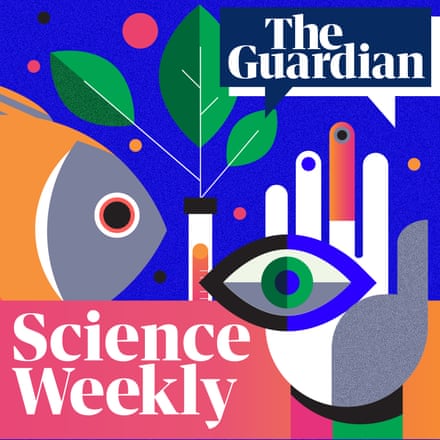
- Apple Podcasts
- Google Podcasts
Presented and produced by Madeleine Finlay with Linda Geddes , sound design by Joel Cox , the executive producer is Ellie Bury
Tue 2 Apr 2024 05.00 BST
- Share on Facebook
- Share on Twitter
- Share via Email
Being more flexible than the average person can have its advantages, from being great at games such as Limbo to feeling smug in yoga class.
But researchers are coming to understand that being hypermobile can also be linked to pain in later life, anxiety, and even long Covid.
Madeleine Finlay hears from the science correspondent Linda Geddes about her experience of hypermobility, and finds out what might be behind its link to mental and physical health
How to listen to podcasts: everything you need to know
Read Linda Geddes’ article on hypermobility here
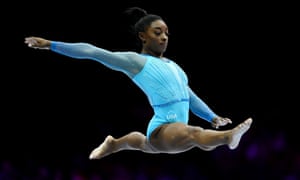
The Guardian is editorially independent. And we want to keep our journalism open and accessible to all. But we increasingly need our readers to fund our work.
- Science Weekly
- Medical research
- Human biology
- Health & wellbeing
Most popular
Are whales mammals? Understanding the marine animal's taxonomy.

Ranging from 9 to 98 feet in length , whales are the largest creatures on Earth. Scientists believe the first whales evolved over 50 million years ago , according to the University of California, Berkeley's Museum of Paleontology. Today, 92 whale species can be found swimming in the deep blue sea .
Whales are a part of the cetacean family , which is divided into two groups: baleen whales (which don't have teeth) and toothed whales . These animals are found in every ocean , but this doesn't mean whales are fish.
It's time to break down a whale's taxonomy.
Are whales mammals?
Despite their underwater habitat, whales are mammals. Mammals are not solely terrestrial; some are fully aquatic, including whales and dolphins, the University of Michigan Museum of Zoology reports.
According to the Whale and Dolphin Conservation , all mammals have the following characteristics:
- Breathe air.
- Have hair or fur.
- Give birth to live young.
- Produce milk and feed it to offspring.
- Are warm-blooded.
Humans have nostrils to breathe and so do whales. A whale's blowhole connects to its lungs to inhale oxygen. Some whales, such as the sperm or Cuvier's beaked, can spend over an hour between breaths , the Whale and Dolphin Conservation reports.
It may not look like it, but whales have hair . Some lose it after birth, while others – including the humpback and right whales – have short hairs on their face.
Whales give birth to live young and feed their offspring with the milk they produce.
Unlike many other ocean dwellers, whales are warm-blooded.
What is the biggest whale in the world? Here's how it compares to other ocean giants.
Do whales lay eggs?
Whales do not lay eggs. Since they are mammals, they give birth to live young.
There are only five known monotremes , or egg-laying mammals, according to the Carnegie Museum of Natural History. These include the duck-billed platypus and four species of echidna.
Just Curious for more? We've got you covered
USA TODAY is exploring the questions you and others ask every day. From " What is the biggest shark? " to " Where do penguins live? " to " How long do orcas live? " – we're striving to find answers to the most common questions you ask every day. Head to our Just Curious section to see what else we can answer.
Office of the Vice President for Research
Ovpr announces recipients of 2024 discovery and innovation awards.
The Office of the Vice President for Research (OVPR) is honoring 11 faculty and staff for their exceptional contributions to research, scholarship, and creative activity as part of the 2024 Discovery and Innovation Awards .
“ The winners represent the best and the brightest of our University of Iowa faculty and staff, who are making an impact across a range of disciplines,” said Marty Scholtz, vice president for research. “Their research and scholarship enhance undergraduate and graduate education on campus, and their efforts to expand the frontiers of discovery betters our community, state, and world.”
The OVPR solicited nominations from across campus for the awards, which include: Scholar of the Year, Early Career Scholar of the Year, Leadership in Research, and awards that recognize achievement in communicating scholarship with public audiences, community engagement, arts and humanities, mentorship, research administration and safety. A campuswide event on April 30 will celebrate the winners.
Faculty Awards

Jun Wang , James E. Ashton Professor and interim departmental executive officer in the College of Engineering’s
Department of Chemical and Biochemical Engineering, is the 2024 Scholar of the Year . The award celebrates nationally recognized recent achievement in outstanding research, scholarship, and/or creative activities.
Wang’s research centers on the development of novel remote sensing techniques to characterize aerosols and fires from space. He serves as the University of Iowa’s lead investigator on NASA’s TEMPO, Tropospheric Emissions: Monitoring Pollution, which Time magazine named one of its best inventions of 2023.
“Professor Wang's scholarly endeavors over the past two years stand out as a paradigm of excellence, serving as an exemplary model for both emerging and seasoned faculty members to aspire toward,” said Karim Abdel-Malek, professor of biomedical engineering and director of the Iowa Technology Institute.

James Byrne , assistant professor of radiation oncology in the Carver College of Medicine ( CCOM ), is the 2024 Early Career Scholar of the Year . The award honors assistant professors who are currently involved in research, scholarship, and/or creative activity and show promise of making a significant contribution to their field.
As a physician scientist, Byrne continues to care for patients while developing novel biomedical therapies for cancer, finding inspiration in everything from latte foam to tardigrades. In his first two years as faculty at the UI, he has earned more that $2.5M in external research funding, including a K08 award from the NIH.
“Dr. Byrne’s scientific creativity stems from both an active and curious mind as well as his ability to bridge diverse fields from engineering to biology to medicine,” said Michael Henry, professor and interim director of the Holden Comprehensive Cancer Center. “These interdisciplinary boundaries are where some of the most interesting and important work is happening today.”

Donna Santillan , research professor and director of the Division of Reproductive Science Research in the CCOM Department of Obstetrics and Gynecology, received the Leadership in Research Award , which recognizes research and scholarly accomplishments throughout a career.
While Santillan’s research has spanned across the field of reproductive science, she has a particular interest in the deadly diseases of pregnancy, including preeclampsia and its intergenerational effects. She designed and directs the Women’s Health Tissue Repository. Santillan’s work has been cited more than 2,700 times, and she has mentored 114 early career scientists and students, a testament to her expansive impact.
“Dr. Santillan has consistently demonstrated an unwavering commitment to fostering the professional and personal development of trainees in research, including myself,” said Banu Gumusoglu, assistant professor of obstetrics and gynecology. “Her mentorship extends beyond the confines of traditional academic settings, touching the lives of many aspiring trainees from high school through residency, clinical fellowship, and faculty levels.”

Stephen Warren , professor of history and American studies in the College of Liberal Arts and Sciences (CLAS), received the Distinguished Achievement in Publicly Engaged Research Award . The award recognizes an individual faculty member who has put addressing public needs and direct engagement with the public, in the service of improving quality of life through research, at the forefront of his or her academic activities.
A prolific scholar of Native American culture, Warren’s research has centered on the Shawnee people of Oklahoma for the past two decades. He has published four books and co-authored the most recent one , Replanting Cultures: Community-Engaged Scholarship in Indian Country, with Chief Benjamin Barnes of the Shawnee Tribe.
“Over the last two decades, Professor Warren has established himself as a leading community-engaged scholar, and his achievements in research and publishing demonstrate that community engagement and strong scholarship are not mutually exclusive,” said Nick Benson, director of the Office of Community Engagement. “Professor Warren’s work serves as an inspiration for researchers at Iowa and nationally who seek not only to make a difference in academia, but also in our communities.”

Kaveh Akbar , associate professor of English in CLAS, received the Distinguished Achievement in Arts and Humanities Research Award . This award honors distinguished achievement in humanities scholarship and work in the creative, visual and performing arts.
Akbar joined Iowa in 2022 to serve as the director of the English and creative writing major. In January, his new novel, Martyr!, was published to critical acclaim. Akbar previously published two prize-winning poetry collections and has served as poetry editor for The Nation since 2021.
“Akbar’s leadership in the profession and on campus continues: his transformative work in our department not only enriches the academic experiences of 700+ English and creative writing majors, but also enhances the profile of UI as ‘The Writing University,’” said Blaine Greteman, professor and departmental executive officer of the Department of English.

Cara Hamann , associate professor of epidemiology, received the Faculty Communicating ideas Award . This award recognizes excellence in communication about research and scholarship in the sciences and humanities and the study of creative, visual, and performing arts to a general audience directly or via print and electronic media.
Hamann has frequently shared her work on transportation issues, including teen driving, bike and scooter safety, and pedestrian safety, through peer-reviewed journals and extensive media outreach. Her recent op-ed, “The most deadly traffic policy you’ve never heard of leaves you vulnerable, too,” drew widespread attention to a legal loophole in crosswalk laws and appeared in more than 50 news outlets nationwide, including USA Today .
“Dr. Hamann’s work is not only academically rigorous but also accessible and impactful to a
wide audience,” said Diane Rohlman, associate dean for research in the College of Public Health. “Her ability to communicate with clarity, creativity, and passion coupled with her extensive media outreach, exemplifies how she utilizes multiple approaches to address transportation challenges impacting society.”
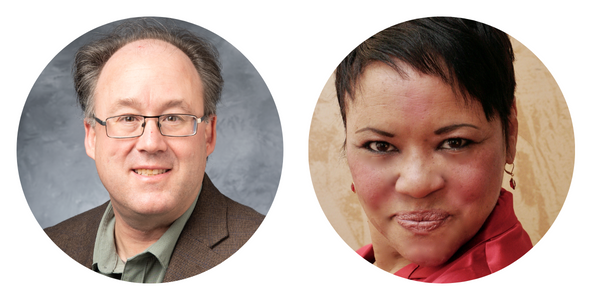
Bob McMurray , F. Wendell Miller Professor in the Department of Psychological and Brain Sciences, and Caroline Clay , assistant professor of acting in the Department of Theatre Arts, were recipients of the Office of Undergraduate Research (OUR) Distinguished Mentor Awards . The awards honors mentors’ dedication to making their students research experiences successful.
“I can’t imagine my research journey without Bob’s welcoming kindness, thriving lab community, and confident mentorship, and I am so deeply grateful for his impact on me,” said Hannah Franke, a psychology and linguistics major mentored by McMurray.
“I know I am far from the only student whose life has been impacted by Caroline Clay,” said Isabella Hohenadel, a second-year theatre arts major. “She deserves to be recognized of all of the wonderful work she does and how much she cares about us as students. I cannot think of anyone more deserving of recognition than her.”
Staff Awards

Angie Robertson , department administrator for CCOM’s Department of Microbiology and Immunology, received the Distinguished Research Administrator Award . The award recognizes staff members who performed exceptional service in support of research at the UI by exploring funding opportunities, assisting in grant proposal preparation, submission, post-award administration, and operational support.
In addition to overseeing every aspect of daily operations for the department, Robertson manages nearly 100 research grants for the department and three longstanding NIH T32 training grants.
“Angie plays a leading role in our department office, inspiring us to achieve all aspects of our missions ,” said Li Wu, professor and department chair. “She is innovative, collaborative, accountable, and respectful in her daily work. She exceeds any expectations and sets a great example for staff members in the department.”

Min Zhu , research specialist in the Iowa Institute for Oral Health Research (IIOHR) within the College of Dentistry, received the Distinguished Research Professional Award . The award recognizes staff members who performed exceptional service in support of research at the UI by conducting experiments, collecting, and analyzing results and performing operational duties associated with a laboratory or research program.
Zhu has worked as a lab bench scientist in the College of Dentistry since 2006, executing experimental work for grants and other research, working closely with IIOHR faculty members, overseeing lab maintenance and environmental health and safety efforts.
“Beyond her research skills, Dr. Zhu has been an exceptional mentor and educator for my students and other junior researchers,” said Liu Hong, professor of prosthodontics. “Her kindness and willingness to share her knowledge have made her a beloved figure among them.”

Curtis Iberg , manager of sterilization services in the College of Dentistry, received the Innovation in Safety Award, which celebrates exceptional and ground-breaking innovations that advance safety at the UI. Iberg led a major renovation of the College of Dentistry’s instrument processing and sterilization area, with the aim of encouraging better workflow and support for future growth.
“His innovations in workspace are a valuable asset to the greater University and demonstrates that the most important people to be involved in a space renovation are those that use the area because they can see how the facility can better function and how it can be designed for future needs,” said Kecia Leary, associate dean of clinics.
The Eclipse Is Great for Learning. But It’s Tough on School Logistics

- Share article
A total solar eclipse will cross a large swath of the country on April 8, sparking tough management choices for leaders of the school districts in its path.
The rare astronomical event will provide an engaging science activity for students. But in many districts, concerns about traffic, crowds, and safety have eclipsed the potential upsides of the collective learning event, sparking precautionary school closures and early student releases.
“I’m a former science teacher, so this is right up my alley,” said Paul Norton, superintendent of the Lake Travis district in Austin, Texas, which will close that day. “We want to make sure our kids are aware of why this is a generational opportunity, but we also don’t want our buses to be stuck on the road [returning students home] until 7 o’clock at night.”

In an event dubbed “the Great North American Solar Eclipse,” the moon will pass between the sun and the Earth, blocking out daylight for people in a 115-mile-wide path of totality that will stretch from Texas to Maine, starting at about 1:40 Central Time, NASA projects.
The total solar eclipse—the last that will be visible in the contiguous United States until 2044—will give viewers the rare opportunity to see the sun’s outer atmosphere, known as a corona, which is usually obscured by the star’s bright light. The temperature will drop in the eclipse’s path, nocturnal animals may stir, and many viewers will see a 360-degree sunset effect.
It will all be over in less than four minutes, scientists project, but educators recognize the eclipse could fuel weeks of classroom discussions and potentially spark a long-term interest in science for students who see it.
Lake Travis district leaders started preparing for the eclipse last summer, Norton said. Ultimately, a recommendation from the county’s emergency management department led leaders to close schools that day.
We are just two weeks away from a total solar eclipse across America!🌎 🌑 ☀️ Want to know what the April 8 eclipse will look like where you live? Enter your location into NASA’s new interactive eclipse explorer map and see for yourself! https://t.co/qDvOzhjVs2 pic.twitter.com/1D390teI47 — NASA Sun & Space (@NASASun) March 25, 2024
Communities across the path of totality expect an influx of tourists and accompanying traffic that could make it difficult for students to walk or ride home in a safe, timely manner, superintendents said. Lake Travis is surrounded by wineries and public lands that will host large events for the eclipse, which will bring out-of-towners—many in RVs—to the region.
Educators plan to teach lessons on the eclipse in advance so that students are prepared to view it at home, Norton said.
Like Lake Travis, hundreds of school systems across the country plan to close that day, some in anticipation of high numbers of absences from students who plan to take a day off to view the eclipse with their families. Some have opted for early dismissals or e-learning days with planned breaks for students to step outside. Further north, the eclipse is expected to hit right around school dismissal times, creating driving challenges for new teen drivers.
Educators are also concerned about monitoring young students during the darkness and ensuring they all wear special disposable glasses that make it safe to view the eclipse. Even just a few moments observing without proper protective eyewear can permanently damage the eye’s retina, scientists and doctors warn.
“This truly is a once-in-a-lifetime event, and we are fortunate to be in the middle of the action,” said a notice from the Cleveland Metropolitan School District, which plans to close April 8.
The district will provide donated glasses to each of its students for home viewing, and its website links to information about watch parties hosted by the city’s library and several museums.
Eclipse provides science learning opportunities
In Arkansas, where the eclipse will cross the state in a diagonal path, students will have a special opportunity to learn collaboratively with their peers in other districts, even if their schools are closed, state education Secretary Jacob Oliva said.

Sixty schools in 45 counties have signed up for a special data collection project in cooperation with the state’s K-12 computer science initiative, through which students and teachers will use special handheld sensors to collect data about shifts in light and temperature levels as the moon passes in front of the sun.
Researchers at the University of Central Arkansas, who trained teachers to use the devices through regional education service cooperatives in recent months, will then combine the data. Following the event, students across the state can then use the results for data-analysis projects in science and computer science classes.
Eclipse FAQs for Educators
Is it safe for students to view the eclipse.
Except for a brief moment of total sun coverage, it is not safe to view the eclipse with the naked eye, NASA scientists caution. But students can safely view it through special eclipse glasses or by projecting the sun’s outline onto the ground through simple homemade devices. Read more here.
Where will the eclipse be visible? What if my school is not in the path of totality?
The total solar eclipse will be fully visible in a swath of the country stretching from Texas to Maine. People outside of the path of totality may see a partial eclipse. Learn more about the eclipse’s path here.
“We need to embrace this as a full educational experience,” Oliva said. “Any time we can support teachers and leaders to bring relevance to the classroom, it’s a real win for everybody.”
More than Arkansas 130 school districts and charter schools have announced plans to close that day. In anticipation, the state has provided resources for students as young as prekindergarten to learn about the solar system, make art projects inspired by the eclipse, and craft devices like cardboard pinhole viewers that project the sun’s outline on the ground for safe viewing.
At the Arkansas School for the Blind, students will use special handheld LightSound devices created by researchers at Harvard University that project a sound that changes in pitch as an internal sensor detects less light.
“It is really a positive thing to hear so much excitement around science,” Oliva said.
Staying open, staying safe
Some districts have opted to stay open the day of the eclipse, preparing educators in advance to help their students safely view it.

In Ann Arbor, Mich., where the eclipse will occur at about 3:13 p.m., district leaders used donations from businesses to buy 20,000 pairs of eclipse viewing glasses—enough for all 17,000 students plus teachers, administrators, and bus drivers who want to take in the event, said Tony Stamm, the district’s elementary math and science curriculum coordinator.
“We won’t see this event again here until 2099,” Stamm said. “To actually be able to step outside and witness something like this during the day together, that’s really rare. I don’t think there’s anything comparable that really accounts to the magnitude of the event, as well as the accessibility.”
The district has its own planetarium, a rare facility for K-12 schools, but teachers don’t often have the opportunity to explain the movement of planets and stars in such a real-world fashion, Stamm said. The district created lesson plans for elementary school teachers, including special materials for those in grades that don’t typically include units on space, he said. Administrators also drafted special announcements for principals to read over school intercoms, including safety instructions and advice for viewing.
At Ann Arbor’s middle schools, the eclipse is expected to darken the sky right at dismissal time. Rather than cancel classes, educators have planned a community event, inviting families to picnic outside with their students and learn about science together.
“We are trying to cover it from all areas because we know this is a unique opportunity that won’t happen again in many of our lifetimes,” Stamm said.
Sign Up for The Savvy Principal
Edweek top school jobs.

Sign Up & Sign In

Advertisement
4 Takeaways From the Abortion Pill Arguments
Several justices questioned the remedy of applying nationwide restrictions to mifepristone because it would be the first time a court had second-guessed the F.D.A.’s expert judgment on a drug.
- Share full article

By Pam Belluck
- March 26, 2024
A majority of the Supreme Court seemed inclined on Tuesday to reject a bid to sharply limit access to abortion pills.
During about 90 minutes of argument, most of the justices seemed doubtful that the plaintiffs, who do not prescribe abortion pills or regularly treat abortion patients, even had standing to bring the challenge . The justices, including several in the conservative majority, questioned whether the plaintiffs could show that they faced the moral harm they claimed to suffer from the availability of the pill, mifepristone.
The case centers on whether changes the Food and Drug Administration made in 2016 and 2021, which broadened access to the drug, would have to be rolled back.
Those changes made it possible for patients to obtain prescriptions for mifepristone by telemedicine and receive abortion pills in the mail, which has greatly increased the availability of medication abortion.
Several justices questioned the remedy the plaintiffs seek: to apply nationwide restrictions to the drug in a case that would have very broad implications because it would be the first time a court had second-guessed the F.D.A.’s expert judgment about drug safety.
“This case seems like a prime example of turning what could be a small lawsuit into a nationwide legislative assembly on an F.D.A. rule or any other federal government action,” said Justice Neil Gorsuch, an appointee of President Donald J. Trump.
Here are some takeaways:
The plaintiffs’ claims of being entitled to sue were met with great skepticism.
To have standing, plaintiffs must show they face concrete harm from the policy or action they are challenging in court. In this case, the plaintiffs, a group of anti-abortion doctors and organizations, say they face moral harm because patients who take abortion pills might seek treatment afterward at emergency departments in hospitals where some of those doctors work.
Solicitor General Elizabeth B. Prelogar, arguing for the government, said the plaintiffs did not “come within 100 miles of the kinds of circumstances this court has previously identified” as grounds for standing. She cited the fact that the doctors do not prescribe abortion pills and are not forced to treat women who take abortion pills. More crucially, she pointed to the fact that because serious complications from abortion pills are very rare, these doctors would not often encounter a woman who had experienced a serious complication requiring them to provide treatment.
The plaintiffs’ lawyer, Erin Hawley, countered by saying the doctors had treated abortion pill patients in emergency departments. She cited the written declarations in the case of Dr. Christina Francis and Dr. Ingrid Skop.
Justice Amy Coney Barrett questioned whether those doctors had provided examples of “actually participating in the abortion to end the life of the embryo or fetus.” She added, “I don’t read either Skop or Francis to say that they ever participated in that.”
The justices also questioned whether the anti-abortion organizations in the case have standing. Those organizations contend that they experience harm because in order to challenge the abortion pill, they have had to divert resources from other advocacy efforts.
Justice Clarence Thomas seemed skeptical of that claim, saying that having to prioritize how an organization spends its time and money would apply to “anyone who is aggressive or vigilant about bringing lawsuits. Just simply by using resources to advocate their position in court, you say now, causes an injury. That seems easy to manufacture.”
There was a lot of discussion about conscience protections.
Federal conscience protections allow doctors and other health care providers to opt out of providing care that they object to on moral or religious grounds. In many hospitals, doctors register their conscience objections in advance so they are never called upon to participate in care they object to.
Lawyers for the government and for a manufacturer of mifepristone, Danco Laboratories, said that if the anti-abortion doctors did encounter an abortion patient, they could easily invoke conscience protections and pass the case to another doctor who did not have moral objections. The plaintiffs are “individuals who do not use this product, do not prescribe this product and have a conscience right not to treat anyone who has taken this product,” said Jessica Ellsworth, a lawyer representing Danco.
Ms. Hawley said there were sometimes occasions in emergency departments where the plaintiffs would not have time to opt out, forcing them to “choose between helping a woman with a life-threatening condition and violating their conscience.”
Justice Ketanji Brown Jackson said there was “a mismatch” between what the anti-abortion doctors are claiming they have experienced and the remedy they are seeking. “The obvious common-sense remedy would be to provide them with an exemption, that they don’t have to participate in this procedure,” Justice Jackson said.
Noting that such a remedy already exists in the form of conscience protections, she said: “I guess, then, what they’re asking for in this lawsuit is more than that. They’re saying, ‘Because we object to having to be forced to participate in this procedure, we’re seeking an order preventing anyone from having access to these drugs at all. ”
Justice Barrett asked about the plaintiffs’ claim that the Emergency Medical Treatment and Labor Act, or EMTALA, which requires emergency departments in hospitals to treat patients with urgent medical issues, would override doctors’ conscience objections and force them to treat patients who have taken abortion pills anyway. Ms. Prelogar said that would not happen because EMTALA applies to hospitals, not individual doctors, so doctors with moral objections could opt out.
The case could affect the government’s role in regulating drugs — and possibly in regulating anything.
Many experts on regulatory policy and leaders in the pharmaceutical industry have said that if the court decides to undermine the scientific expertise of the F.D.A. , it would deter companies from developing new medications and would ultimately hurt patients who would not have those medications available. They say it could also shake the regulatory authority of other government agencies.
Several justices asked about this issue. “Do you have concerns about judges parsing medical and scientific studies?” Justice Jackson asked Ms. Ellsworth, the lawyer for the manufacturer. Ms. Ellsworth said that was a concern, noting that two studies the plaintiffs had cited to show mifepristone was unsafe had been recently retracted .
“That is why FDA has many hundreds of pages of analysis in the record of what the scientific data showed,” Ms. Ellsworth said. “And courts are just not in a position to parse through and second-guess that.
A 19th-century anti-vice law made an appearance.
The Comstock Act, enacted in 1873, bars the mailing of drugs that can be used to terminate pregnancies.
Justices Alito and Thomas asked whether the act, which has not been used in decades and has been narrowed by the courts and Congress, applied, as the plaintiffs claim.
“The Comstock provisions don’t fall within F.D.A.’s lane,” said Ms. Prelogar, who said that the F.D.A.’s responsibility was to determine the safety and effectiveness of drugs and to regulate them. She also pointed out that the Justice Department issued an opinion that the Comstock Act applied only if the sender intended for the recipient of the materials to “use them unlawfully.”
Ms. Ellsworth warned of what might ensue should the court decide the act applied. “I think this court should think hard about the mischief it would invite if it allowed agencies to start taking action based on statutory responsibilities that Congress has assigned to other agencies,” she said.
Pam Belluck is a health and science reporter, covering a range of subjects, including reproductive health, long Covid, brain science, neurological disorders, mental health and genetics. More about Pam Belluck
Canada lynx historic range in US likely wider than previously thought
A broader past could mean a brighter future for Canada lynx in the U.S., according to recent research.
The study, published in the journal Biological Conservation , indicates that lynx might do well in the future in parts of Utah, central Idaho and the Yellowstone National Park region, even considering climate change and the lack of lynx in those areas now.
Using a model validated by historic records, researchers first found that in 1900, Canada lynx had more suitable habitat in the U.S. than the few northern corners of the country where they are found currently. The study showed the elusive big cat likely roamed over a larger area in the Pacific Northwest, Rocky Mountains, Great Lakes region and parts of New England.
"History matters even for wildlife," said lead author Dan Thornton, a Washington State University wildlife ecologist. "As part of the criteria for species recovery, we have to understand their historic distribution. Otherwise, how can we help recover a species, if we don't know what we're recovering to?"
Having a more accurate picture of a species' past can also help avoid an effect known as "shifting baseline syndrome," Thornton added, which is a gradual change in what people accept as normal for the environment, or specifically in this case, a species' habitat.
True to their name, Canada lynx are still abundant in Canada, but in the U.S. their numbers have dwindled. Currently, they are only found in limited, northern portions of Washington, Idaho, Montana, Minnesota and Maine. So far, recovery plans for lynx have been based on assumptions that they were never found much beyond these areas in the U.S., although a small population was successfully re-introduced to the Colorado Rockies in 1999.
This study, which has conservation implications for not only lynx but other threatened species, proposes one new way of estimating a species' historic range, using modelling of suitable habitat validated by historical records.
Thornton and co-author Dennis Murray of Trent University in Canada created the model using factors to determine lynx's suitable habitat like temperature, precipitation and land use in the last 40 years. They ran that model back in time to 1900 using historic climate and land use data to discover the possible past range, which they validated using records of lynx from museums as well as hunters and trappers who have prized the big cat for its fur.
The researchers then used the model to project suitable habitat into the future of 2050 and 2070. Even when accounting for climate change effects, they found areas that could be good for lynx that fall outside the species' current range but likely within historically occupied areas: namely in central Idaho, northern Utah and the area in, and around, Yellowstone National Park. Whether or not these areas could support viable lynx populations now or in the future would require additional research, the authors noted.
Conserving lynx as a key predator is important for maintaining the integrity of forest ecosystems, the authors contend, and lynx are an iconic species in the mountains of the Pacific Northwest.
The researchers also hope that this approach to estimating historic range could help inform conservation efforts for other species.
"Thinking about historic range is really important. It's also quite difficult because we often have limited data on where species were in the past," Thornton said. "But there are potential ways to go about addressing that, and we wanted to provide one possible approach in this paper."
This research received support from the U.S. Department of Agriculture's National Institute of Food and Agriculture.
- New Species
- Early Climate
- Anthropology
- Canada Lynx
- Temperature record of the past 1000 years
- Common Chimpanzee
- Garter snake
Story Source:
Materials provided by Washington State University . Original written by Sara Zaske. Note: Content may be edited for style and length.
Related Multimedia :
Journal Reference :
- Daniel H. Thornton, Dennis L. Murray. Modeling range dynamics through time to inform conservation planning: Canada lynx in the contiguous United States . Biological Conservation , 2024; 292: 110541 DOI: 10.1016/j.biocon.2024.110541
Cite This Page :
Explore More
- Extremely Fast Wound Healing: New Treatment
- Micro-Lisa! Novel Nano-Scale Laser Writing
- Simple Brain-Computer Link: Gaming With Thoughts
- Clinical Reasoning: Chatbot Vs Physicians
- Understanding People Who Can't Visualize
- Illuminating Oxygen's Journey in the Brain
- DNA Study IDs Descendants of George Washington
- Heart Disease Risk: More Than One Drink a Day
- Unlocking Supernova Stardust Secrets
- Why Do Some Memories Become Longterm?
Trending Topics
Strange & offbeat.

COMMENTS
Our top essays by scientists in 2021. 20 Dec 2021. 10:50 AM ET. By Katie Langin. Share: Robert Neubecker. When I emailed Phil De Luna in March to ask whether he was OK with titling the essay he'd written for Science " After falling in love, I reimagined my career path—for the better ," I wasn't sure how he'd react to the "love ...
18 Dec 2020. By Katie Langin. Robert Neubecker. In early March, a professor in China submitted an essay describing the anxiety and turmoil that gripped his life after the COVID-19 pandemic erupted in Wuhan. When I first read the essay at my desk in the United States, where we were just starting to feel the virus's impact, it felt like a voice ...
Much of his writing addresses the ways science and technology influence our culture, though he has written some great biographies and monographies on other topics as well. Timothy Ferris : Not to be confused with Timothy Ferriss, science writer Tim Ferris has written a number of best-selling popular books on physics and cosmology.
1. David Sedaris - Laugh, Kookaburra. A great family drama takes place against the backdrop of the Australian wilderness. And the Kookaburra laughs…. This is one of the top essays of the lot. It's a great mixture of family reminiscences, travel writing, and advice on what's most important in life.
Science papers are interesting to write and easy to research because there are so many current and reputable journals online. Start by browsing through the STEM research topics below, which are written in the form of prompts. Then, look at some of the linked articles at the end for further ideas.
Great Essays in Science. Paperback - January 1, 1994. Martin Gardner, author of numerous books on science, mathematics, and pseudo-science, has assembled thirty-four extraordinary essays by eminent philosophers, scientists, and writers on the fundamental aspects of modern science.As Gardner makes clear in his preface to the formerly titled ...
Dr Peter Judge | Tutorial Essays for Science Subjects 1 Tutorial Essays for Science Subjects This guide is designed to provide help and advice on scientific writing. ... approaching the material in a slightly different way from you and that's the great thing about the Oxford system - in tutorials you'll have the opportunity to see ...
In 2021, with one year of the battle against the coronavirus behind us, several books came out related to the pandemic. One of those books, The Premonition, by Michael Lewis, is on this list ...
4.00. 78 ratings6 reviews. Martin Gardner, author of numerous books on science, mathematics, and pseudo-science, has assembled thirty-four extraordinary essays by eminent philosophers, scientists, and writers on the fundamental aspects of modern science.As Gardner makes clear in his preface to the formerly titled Sacred Beetle and Other Great ...
Science Essay Examples. A great way to get inspired when writing a science essay is to look at other examples of successful essays written by others. Here are some examples that will give you an idea of how to write your essay. Science Essay About Genetics - Science Essay Example.
The good news is that, with a little practice, writing a science essay can be an easy and rewarding experience. The following tips will help you write the best science essay possible. Pick a Good Topic. The first step to writing a great science essay is to pick a good topic. Try to pick something you're interested in and know at least something ...
A Great Science Essay depends on the chosen topic. Here is the list of 50 Best Science Essay Ideas For High School for you to choose from. Select one and begin! Science іѕ thе dіѕсірlіnе thаt іѕ ѕhіnіng lіkе a ѕtаr іn аll wаlkѕ оf life. High school students аrе generally gіvеn wrіtіng assignments іn Science.
3. Reflections from a Nobel winner: Scientists need time to make discoveries by Donna Strickland. "We must give scientists the opportunity through funding and time to pursue curiosity-based, long-term, basic-science research. Work that does not have direct ramifications for industry or our economy is also worthy.
Sample Essay On Science in 100 words. Science, the bedrock of human progress, unveils the mysteries of our universe through empirical investigation and reason. Its profound impact permeates every facet of modern life. In medicine, it saves countless lives with breakthroughs in treatments and vaccines. Technology, a child of science, empowers ...
Get the huge list of more than 500 Essay Topics and Ideas. Science as a Subject. In class 1 only a student has Science as a subject. This only tells us about the importance of Science. Science taught us about Our Solar System. The Solar System consists of 9 planets and the Sun. Most Noteworthy was that it also tells us about the origin of our ...
Originally published as: The sacred beetle and other great essays in science. 1984. Classifications Dewey Decimal Class 500 Library of Congress Q171 .S13 1994, Q171.S13 1994 The Physical Object Pagination xv, 427 p. : Number of pages 427 ID Numbers Open Library OL1424528M Internet Archive greatessaysscien00gard ISBN 10 0879758538
Misc. Fear and Loathing in Las Vegas by Hunter S. Thompson. The Last American Hero Is Junior Johnson. Yes! by Tom Wolfe. Masters of the Universe Go to Camp by Philip Weiss. What Is Glitter? by Caity Weaver. The best short articles, nonfiction and essays from around the net - interesting articles and essays on every subject, all free to read online.
Share in writing - posters, scientific reports, newspaper stories, magazine articles, letters, postcards, cartoons or even a mini-book share! ... Hub assume no liability with regard to injuries or damage to property that may occur as a result of engaging in the Great Science Share for Schools. This campaign is designed to be carried out by ...
Being more flexible than the average person can have its advantages, from being great at games such as Limbo to feeling smug in yoga class. But researchers are coming to understand that being ...
The wave of unnecessary layoffs sweeping Silicon Valley is the latest evidence of corporate America's addiction to change for change's sake.
Opinion Guest Essay. The Great Rupture in American Jewish Life. ... is a professor of journalism and political science at the Newmark School of Journalism at the City University of New York.
Science, like love, is an infallibly human endeavor. Whatever we think we know, particularly about the nature of consciousness, is shaped by our subjectivity. But we can only really know ourselves ...
Despite their underwater habitat, whales are mammals. Mammals are not solely terrestrial; some are fully aquatic, including whales and dolphins, the University of Michigan Museum of Zoology ...
The term "artificial general intelligence" (AGI) has become ubiquitous in current discourse around AI. OpenAI states that its mission is "to ensure that artificial general intelligence benefits all of humanity." DeepMind's company vision statement notes that "artificial general intelligence…has the potential to drive one of the greatest transformations in history."
The Office of the Vice President for Research (OVPR) is honoring 11 faculty and staff for their exceptional contributions to research, scholarship, and creative activity as part of the 2024 Discovery and Innovation Awards. "The winners represent the best and the brightest of our University of Iowa faculty and staff, who are making an impact across a range of disciplines," said Marty ...
Jackie Johnson and her son Bradley Johnson, 9, watch a partial solar eclipse at the Frost Science Museum on Oct. 14, 2023, in downtown Miami. In 2024, some districts are planning to delay or ...
Walking tour around Moscow-City.Thanks for watching!MY GEAR THAT I USEMinimalist Handheld SetupiPhone 11 128GB https://amzn.to/3zfqbboMic for Street https://...
Several justices questioned the remedy of applying nationwide restrictions to mifepristone because it would be the first time a court had second-guessed the F.D.A.'s expert judgment on a drug.
A broader past could mean a brighter future for Canada lynx in the U.S., according to recent research. The study indicates that lynx might do well in the future in parts of Utah, central Idaho and ...